Do Black athletes face added



Students describe how hyperfixations cause obsessions in their lives.
Students and teachers weigh in on the effects of listening to music in school.
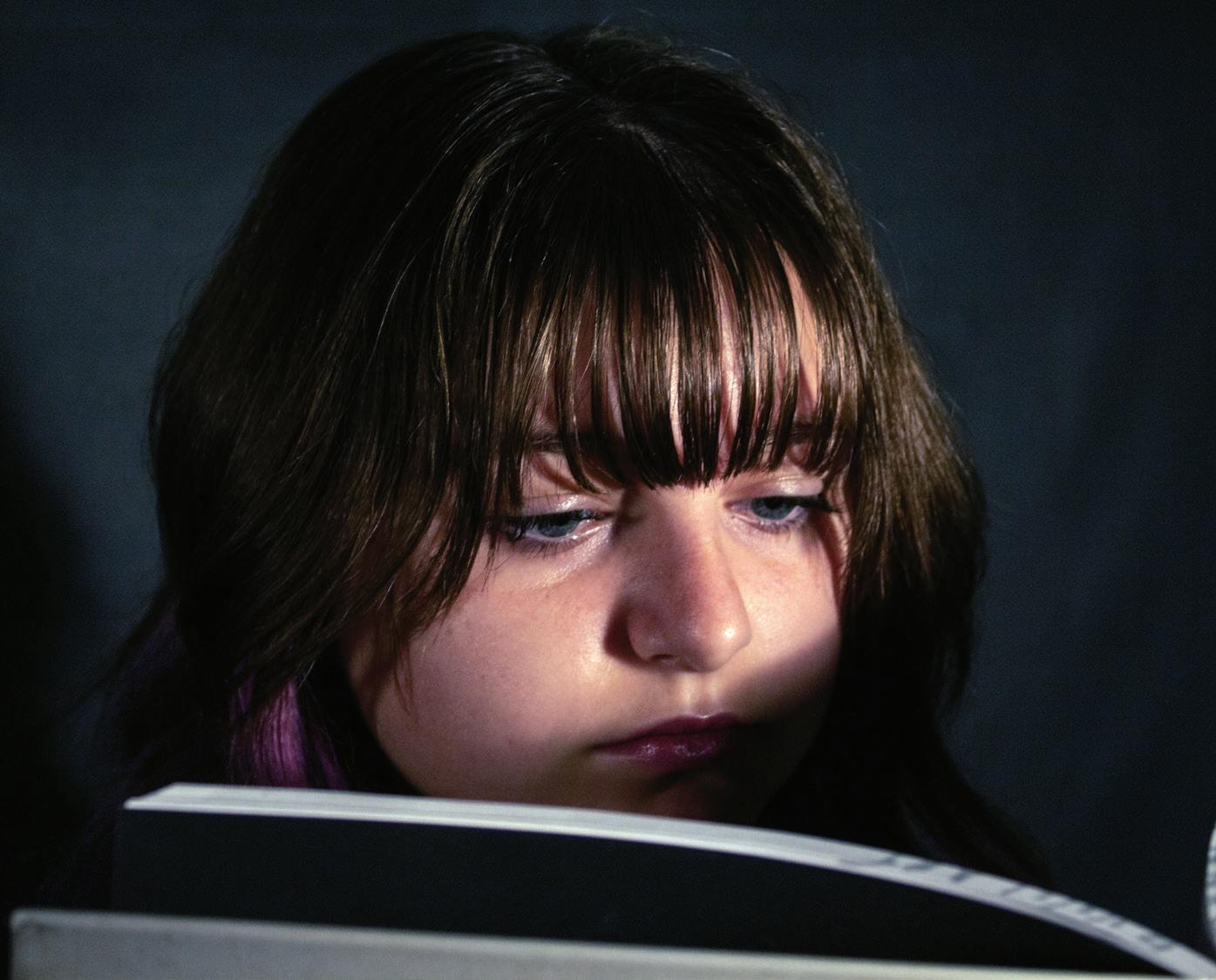
First and second generation immigrant students discuss the expectation for them to adapt to U.S. culture.
Students who are a part of the Northwest theater program explain why they feel theater is underrepresented.

“Hey Alexa, Play ‘The Sweet Escape’”
Athletes and coaches discuss the reality of the stereotype ‘Black athletes are superior in sports’ and how it impacts athletes today. Junior football player Lovie Pulliam said he feels held to a higher standard when on the field. “Every game is like if I don’t complete right, I’m gonna be off the field forever,” Pulliam said. “I do everything to be the best of the best.”
A collection of photos of student activities from first quarter.
Read about staff members who contribute to the community in unnoticed ways.
Photos from football, boys soccer, cheer, girls tennis and volleyball events throughout the fall sports season.
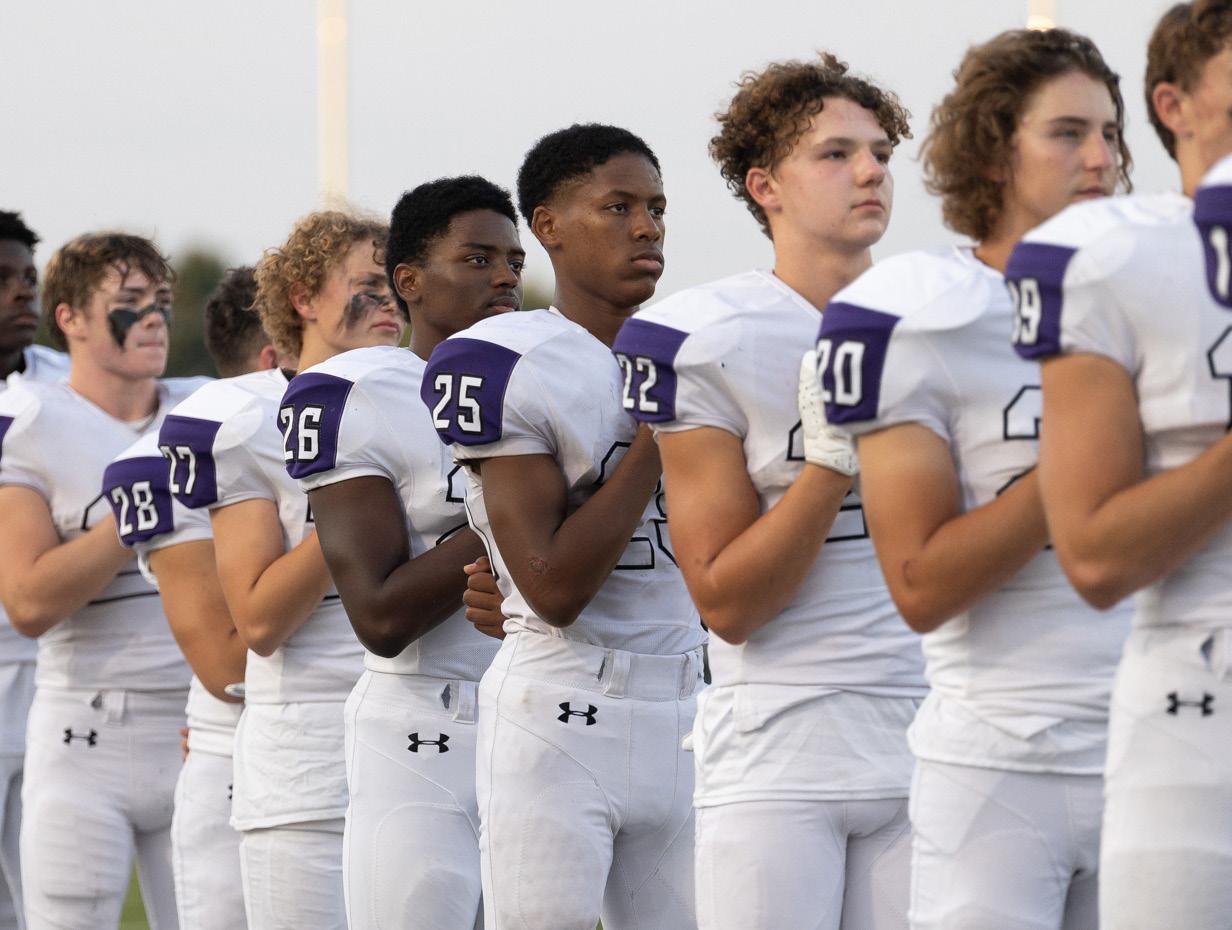
We have progressed to a point in our society where most people, unless willfully ignorant, recognize negative stereotypes as harmful. Saying “All Muslims are terrorists,” is not only extremely offensive, but simply untrue. Feeding into that negative stereotype hurts the image of any individuals who are simply practicing their religion. Because we believe most people understand how wrong this statement is, we now must turn our attention to the negative impact of a “positive” stereotype.
Positive stereotypes are meant to describe the admirable, desirable or beneficial qualities and characteristics of the members of a particular group or social category. Despite this intent, these stereotypes actually create blanket assumptions that unrealistically represent the individuals they pertain to. Statements like “All Asians are really smart,” or “Gay men have great fashion sense,” have no actual proof or science to back them up.
In addition to presenting false narratives about different demographic groups, stereotypes can have harmful effects on the people they target. Though not all stereotypes have negative connotations, they still create unfair expectations for how people should act and be perceived by others. Take the stereotype “If you’re tall, you should be playing basketball or volleyball.” Imagine someone who is well-above average in height hears this stereotype and is suddenly overwhelmed with a new external pressure. Members of society are expecting them to excel at something, no matter their feelings, goals and actual abilities.
To put it plainly,
positive stereotypes are just microaggressions disguised as compliments. Microagressions are repeated statements or actions regarded as instances of indirect or unintentional discrimination against members of a marginalized group, such as a racial or ethnic minority. Both positive and negative stereotypes are considered to be microaggressions, as they can all cause negative impacts on their subjects. When it comes to microaggressions, it is important to understand that despite the intention of the statement, the recipient will likely take it offensively.
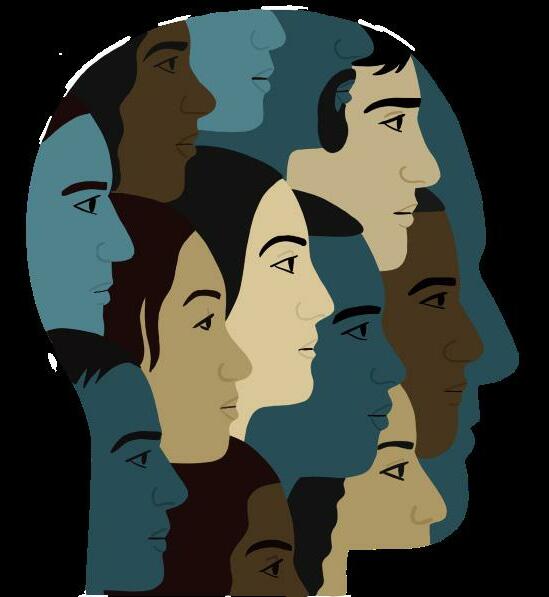
Everyone perceives life differently, because everyone has had unique life experiences. If you are raised with the idea that “Black people are inherently superior at athletics,” then you live your life with that “positive” bias. To confirm your bias, you subconsciously seek out Black individuals with high athletic abilities, and every time you find one, that bias is reaffirmed. However, it is utterly ridiculous to attempt categorizing and molding an entire race into one idea.
Feeding into this concept fails to take into account the distinct differences within the group. Additionally, it unjustly paints all Black athletes with the same brush, thus ignoring the unique strengths and abilities of each person. Not to mention, this idea invalidates the hard work and effort put in by a Black individual. Reducing a person to what they are allowed to be good at based on one aspect of their being is dehumanizing.
Stereotypes like this set the bar unrealistically high. They can inhibit an individual’s ability to perform well. Added pressure from not fitting the stereotype may even lead to an identity crisis or depression. It would be nonsensical to assume none of us have ever fed into a positive stereotype, but let’s just be aware. Understanding the difference is important, but change is made with action. Improvement cannot be met unless we all do our part to fix our ways.









Writer Anna Bailey thinks that expecting students to sit at a desk for seven hours a day is unfair
 Written and Designed by Anna Bailey
Written and Designed by Anna Bailey
When I am working on my homework, getting up for a bit and taking a walk helps clear my brain so I can be more productive. I am neurodivergent, specifically, I have been diagnosed with attention-deficit-hy peractivity disorder. Being forced to sit at a desk for seven hours a day is extremely difficult for me.
There have been many instances where I am instructed by my teacher to do specific work but also am told that I can’t listen to music at this time because it will distract me. For a good chunk of the student body allowing them to listen to music will do the opositte of distracting, instead it will help them focus.
ADHD is not the only disorder that can affect a persons ability to focus. Melinda Ledlow, a clinically licensed coun selor at Nurturing Divergence, which specializes in neurodi vergent counseling, said autism, depression and anxiety can also lead to this struggle.
For neurodivergent students there are many factors that go into why they may struggle with sitting still, Ledlow ex plains that these happen because the neurotypical brain has a harder time processing what is going on around them on a sensory level.
“There is often a lot of noise thats happening in the class room, the temperature is not always great, people are sitting close by… so if you’ve got ADHD and all of these things are happening around you, you’re processing all of this but all of it is not helpful, its gonna make it really, really hard for you to pay attention,” Ledlow said.
The majority of a student’s seven-hour school day is spent sitting at a desk. Whether they are listening to a lecture, talking in groups or working on homework, students are usually expected to stay at that desk.
Throughout my school day, the only times when I am not expected to sit still are passing periods, lunch or specific classes which require me to be up and out of my seat. How ever, for many students, all seven of their classes are spent at a desk the entire time. This would mean a student might only get 40 minutes throughout their entire day where they are not required to stay seated.
Another portion of a student’s day is Academic Support Time, this allows students time to work on whatever class work they need to finish. Despite this privilege, many stu
dents find this time is less helpful than it could be because of the expectation to stay put.
As a part of the student body, I am grateful for the time I am given to get my work done. However there should be some sort of basic understanding about the importance of allowing students to do what they need in order to be pro ductive.
As someone who struggles with focusing for long periods of time, listening to music or taking a short walk are what allow me to be productive as I am expected. Ledlow em phasizes how it is extremely common for students to fidget in moments when they need to be productive or actively listening.
“You may wring your hands, sometimes there’s hand flapping, picking at your fingernails, picking at your cuti cles, playing with your hair. Really any kind of repetitive movement is what you’re looking at when you’re looking at fidgeting,” Ledlow said.
When I am sitting in a classroom and working on my classwork, I should be able to fidget, listen to music or take a walk to help me best.
The school needs to provide more options to students. Simply allowing them to get up and take a quick walk during their free time or listen to music while they work can better accommodate any student who struggles to stay focused.
According to Sydney Barnett getting vaccinated is important because it protects the community and improves our quality of life
 Written by Sydney Barnett, Design by Anna Bailey
Written by Sydney Barnett, Design by Anna Bailey
Imagine a world where parents do not let their children attend social events or school due to fear of them con tracting a disease. No, I am not talking about COVID-19. Many families lived this way prior to a polio vaccine and this is quickly becoming a reality again.
Beginning in February, polio cases began to emerge in many countries. Polio is an infectious disease that can cause paralysis and can be fatal. Poliovirus was found in wastewa ter in New York in August.
This disease was extremely close to being eradicated at the beginning of this year, according to global health experts.
Similarly, measles was eliminated in the United States in the year 2000, following more than 12 months with no transmission of the virus, according to the National Institute of Health.
However, new outbreaks were discovered in 2019 throughout different countries, including the US, because of declines in measles vaccinations.
Vaccination decline can be attributed to misinformation being spread on the internet. When someone looks up the possible side effects of a vaccine, they are drawn to the extreme stories of reactions to vaccines.
Kansas City pediatrician Ellen Glotzbach said that when people only see negative stories online, it leads to the circulation of misinformation. Then, if someone chooses to believe the misinformation, they will be afraid of getting vaccinated.
This has resulted in vaccination numbers declining. In 2021, 25 million children were not vaccinated, according to the World Health Organization (WHO). This was the highest number of unvaccinated children recorded since 2009.
While it is possible for someone to have a reaction to a vaccine, it is uncommon. Only 1 to 2 people out of 1 million may have a severe allergic reaction, according to the US Department of Health & Human Services.
“There is always going to be an individual who may have an allergic reaction, but across the board the percentage of people who tolerate vaccines is very high,” Glotzbach said.
While it is best to be vaccinated at an early age, Glotzbach believes getting vaccinated at any age is safe and beneficial.
Vaccines can have many positive effects on a communi ty. Glotzbach said that vaccines keep a person healthy and
improve quality of life. This includes increased sociality and benefits to the cardiovascular, respiratory and nervous systems.
Vaccine coverage allowed communities to become more social again. Now, many vaccines are required in order for a student to be able to attend school in Blue Valley.
BVNW nurse Becky Imlay said these include measles, polio, smallpox, DPT (diphtheria, pertussis and tetanus) and more.
“[These vaccines] are required and important because they keep diseases out of the general population,” Imlay said.
Vaccinations work to train the immune system to produce antibodies by exposing the system to weakened or killed bac teria, according to WHO. These germ forms have no ability to cause the disease or put you at risk of developing its symp toms or complications, but the exposure improves immunity to the disease.
Our great grandparents grew up in a world where vaccines largely did not exist. As a result, they lived in a time where families feared death, especially in children, from diseases that are now largely preventable due to vaccines.
We are fortunate to live in a time where safe and effective vaccines are available to avoid these tragic outcomes. Every one should do their part to ensure not only their own health but the health of the community, especially those who are immunocompromised. Not using what science has provided is both selfish and irresponsible.
A disease is considered eliminated in a region when it is no longer being circulated there
A disease is declared eradicated when it has been eliminated wordwide
According to College of Physicians of Philadelphia

 Written by Quinn Brown and Bridget Hamlin, Photos by Kendall Dickerson, Design by Regan Simeon
Written by Quinn Brown and Bridget Hamlin, Photos by Kendall Dickerson, Design by Regan Simeon
When senior Michael James was 11 years old, he missed out on a pool party at the end of the school year due to obsessively playing Minecraft.
“There was a party, and I was so into playing Minecraft that I didn’t go, and I kind of [regret] that,” James said.
While he did not realize it at first, James’ obsession with Minecraft was a hyperfixation, which stemmed from his undiagnosed Autism Spectrum Disorder.
James’ mom, Tamara Seyler-James has declined to comment for this story.
While James’ ASD remains undiagnosed, he said that since he was young, he has been aware of his struggle with it.
“I’ve been a part of the gifted program since I was in first grade, and I observed to have needed [help with my ASD] because of emotional and behavioral issues. But, I’m now finally



Senior Bridget Fowler often finds herself in a battle for sleep with hyper fixations.
“If I [ruin] my sleep schedule, then it’s hard for me, in the mornings, to wake up. It’s harder for me to go throughout my school day,” Fowler said.

seeing its effects on the way I interact with people differently,” James said.
“I only realized that I had [hyperfixations] recently, but I’ve had them since I was super young. I didn’t realize how different it was from how people normally enjoy things,” James said.
At the age of 7, senior Bridget Fowler was diagnosed with attention-deficit hyperactivity disorder.
“I didn’t really understand what [ADHD] was until probably middle school. [Around] high school is when I really started noticing that I have to work on my ADHD,” Fowler said.
ADHD and ASD are considered to be neurodivergent conditions. Licensed specialist clinical social worker Drew Belanger defined what it means to be neurodivergent.
“Anyone whose brain operates differently is considered neurodivergent. If you were to scan their brains it would look a bit differently than someone who is neurotypical,” Belanger said.
Especially prevalent in neurodivergent individuals, hyperfixation means putting a lot of focus into a topic to the extent of causing an issue, according to Belanger. Belanger works at a private group practice called Responsive Centers for Psychology and Learning in Overland Park.
“To define [hyperfixations], I would say [it’s] to fixate on something. And the hyper part of that would be that the time and energy you are putting into that thing is causing a disruption,” Belanger said.


However, there are benefits that can come as a result of hyperfixations, at least in senior Simone Bealer’s experience; whose ADHD causes her to have this condition and allows her to connect with her peers.
“I actually have a lot of friends who have ADHD or something similar. It is pretty good because you have someone to relate to,” Bealer said.
Unlike Bealer, Fowler said she has had a more negative experience with hyperfixations. Since she was young she has frequently stumbled upon rabbit holes that are extremely difficult to get out of.
“If a question pops up in my head, I have to search it and go in-depth,” Fowler said. “I won’t look up from my
Senior Michael James will play Celeste for hours on end due to hyperfixation. “Every week [I spend about] 30 hours on the game,” James said.


phone until I know everything about whatever [I am fixated on].”
Fowlers’ parents, Christy and Don, have declined to be interviewed for this story.
Because hyperfixations can last for long periods of time, Belanger said many students with this condition struggle with time management.
“[Hyperfixations are] very commonly linked to feeling like they are spending too much time on their interests, losing track of time and then having to either sacrifice sleep or their mental health to do their homework,” Belanger said.
According to Belanger, hyperfixations cause a shift in attention, away from homework and onto the hyperfixation.
“It is very common that I hear people talk about taking a break to play video games and then time just flies by and before they know it, they haven’t done their homework or eaten,” Belanger said.

In Bealer’s experience, she said she feels she has to take breaks from her school day due to her hyperfixations. In addition, Bealer mentioned that they cause her to become too concentrated on specific parts of her schoolwork.
“Sometimes, you’re not focused on [school]work as a whole, [but] on a
specific part, like a sentence, word or paragraph and you’ll re-do it over and over,” Bealer said.
Struggling with classwork because of hyperactivity is no exception to Fowler, as she said that she has to work extremely hard in order to process and understand what her teachers say.
“I always have to be hyper aware of everything that I do… I [have to] make sure that I hear what the teacher is telling me and [it is] not going in one ear and out the other,” Fowler said.
One other effect of hyperfixations, according to Fowler, is they can be damaging to one’s well-being and physical state.
“If you hyperfixate on anything, it can really be damaging to your mental health, as well as your body in general. Once I realize that I’m hyperfocusing, [I] try to step back and take a break,” Fowler said.
For people who struggle with hyperfixations, Bealer said it is important to remember to stay positive because you can manage it.
“A hyperfixation isn’t a blessing, but it isn’t a curse, either. It’s more of a thing that’s just there,” Bealer said. “It’s part of who you are. You shouldn’t really be ashamed of it, and there’s a way to cope with it.”
Right: Junior Jackie Lee runs along the track with junior Kaitlyn Thomas and sophomore Isabella Lee, representing Asian American Club for Husky Night, Aug. 26. “I like the awareness that we got,” Jackie said. “Since our club is fairly new, I think it was important to get it out there.” (Photo by Kendall Dickerson)
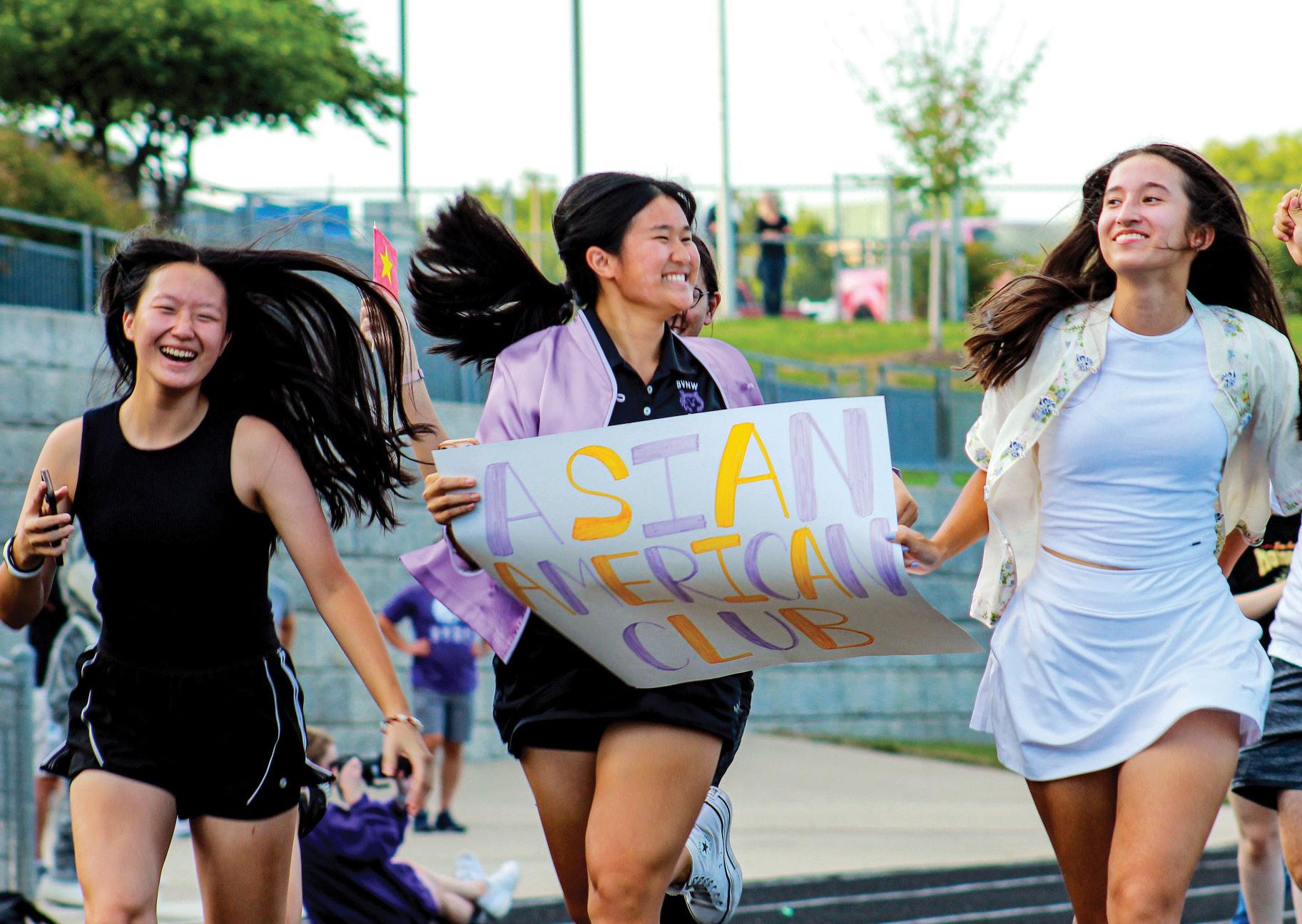
Below: Freshmen Morgan Sears, Braylynn Bartlett, Devon Hotze and Rylie Edwards perform an expirement involving paper clips, water and laundry detergent during their seventh hour biology class, Sept. 15. “Biology has been a fun experience this year,” Sears said. “I’m having fun learning.” (Photo by Remi Nuss)
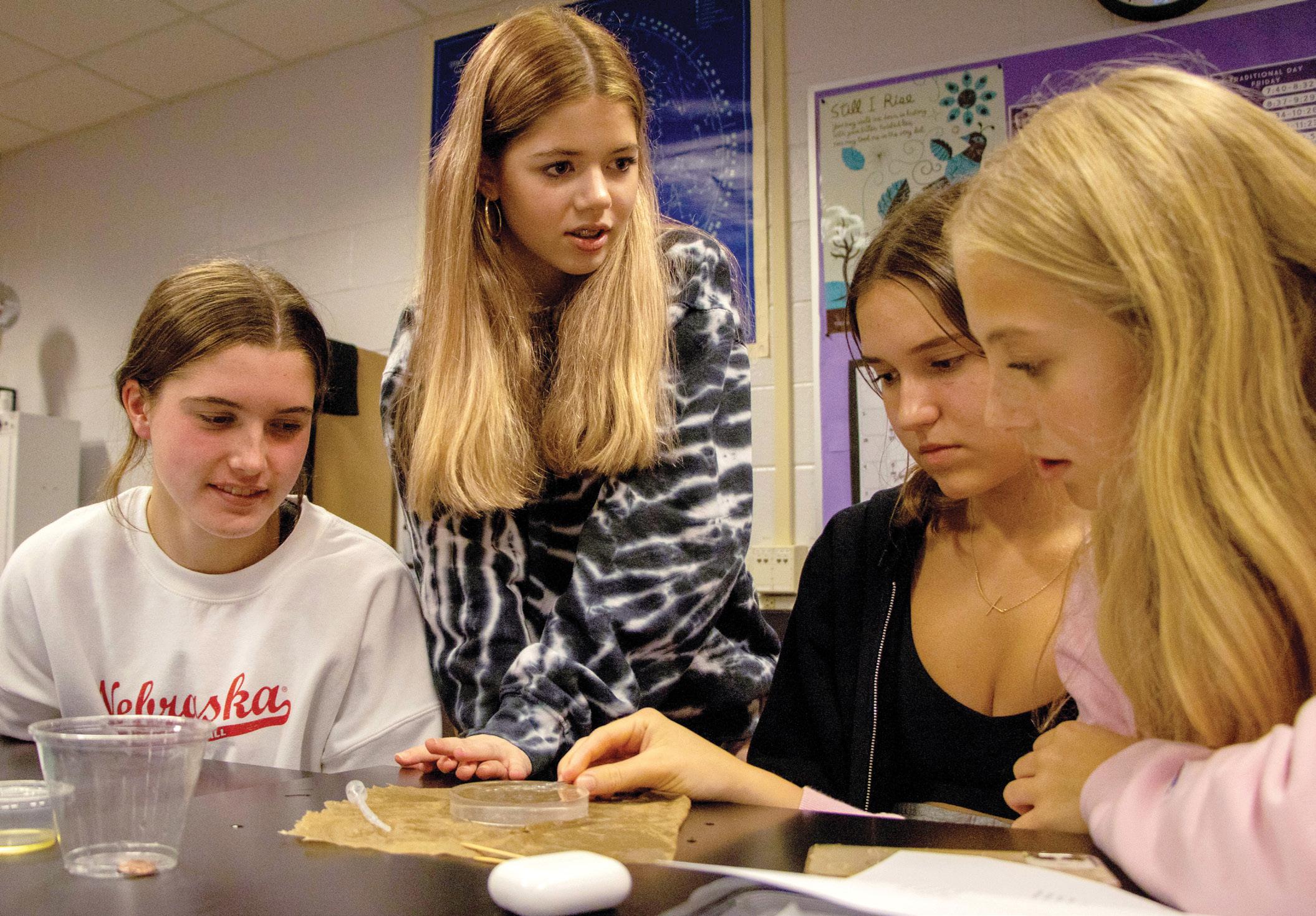
Sophomore Avery Worden participates in her grade’s skit for Disco Day during Homecoming Spirit Week, Sept. 27. “[Skits] can be stressful depending on how many people are doing it, but most of the time it is really fun trying to come up with ideas,” Worden said. (Photo by Lila Vancrum)
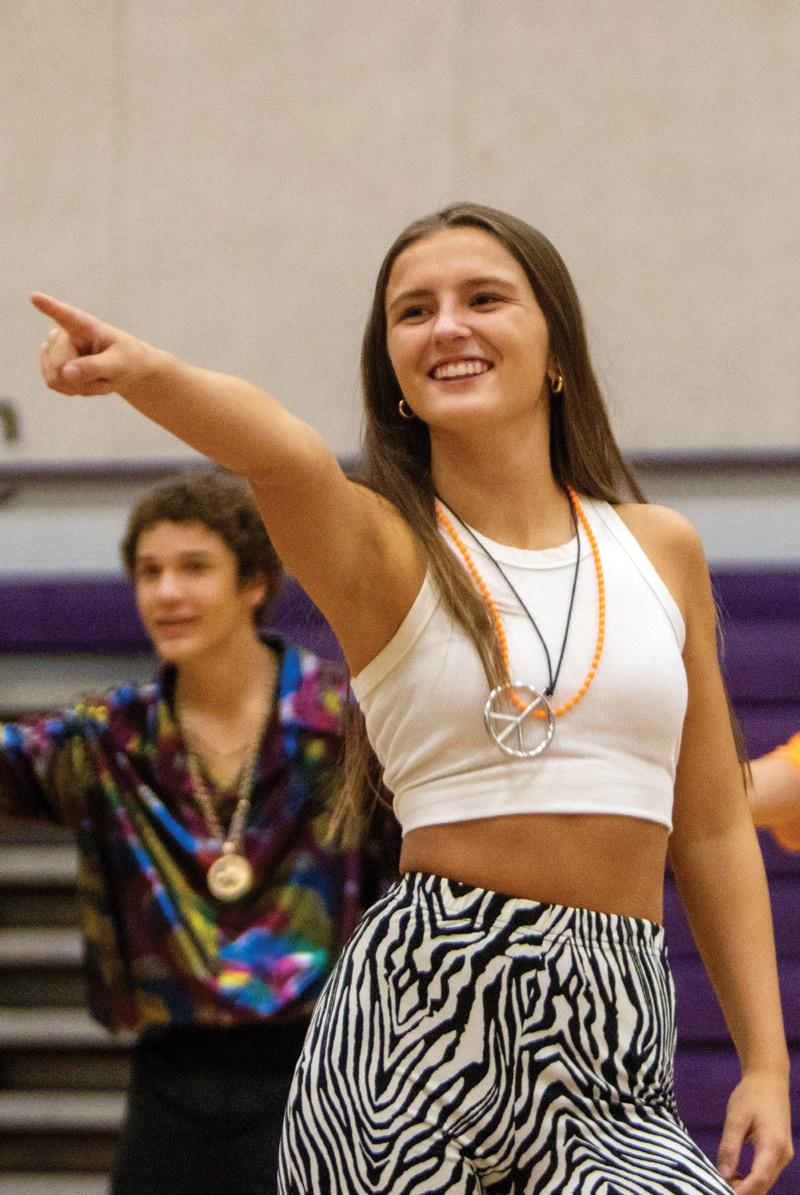
Seniors in the student section cheer on the football team at the first home game against Saint Thomas Aquinas, Sept. 9. “It’s really special when everyone in the student section is doing all the chants,” Senior Will Rauter [fourth from right] said. “It makes the game ten times better when everyone is yelling and paying attention.” (Photo by Norah Alasmar)
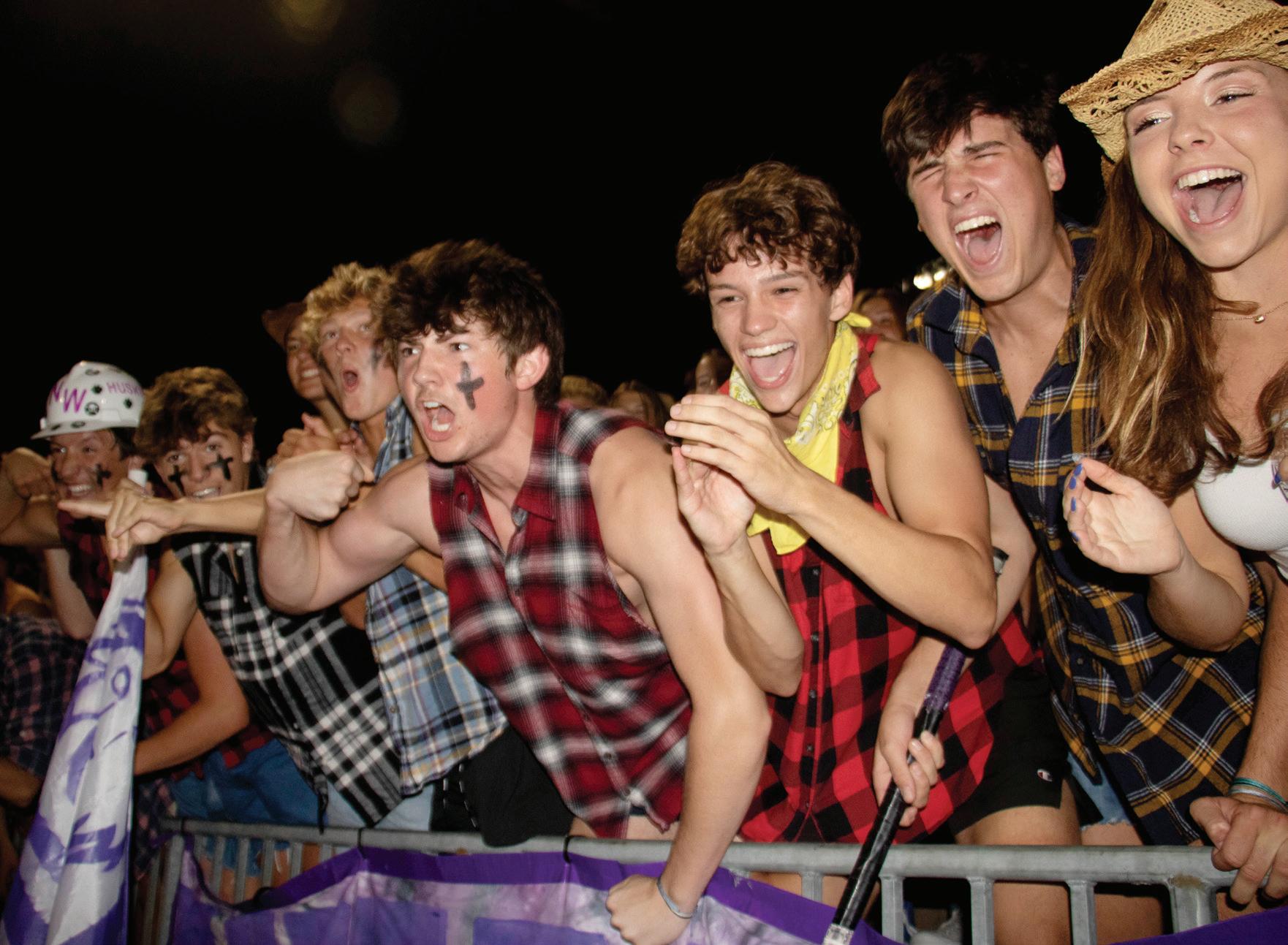
Seniors Devin Tramble and Terry Lillis build a baseball bat in their Wood III course, Aug. 31. “I don’t think I’ll make a business or career out of [woodworking], but it’s something I would do in my pastime,” Tramble said. (Photo by Shahd Abdeljalil)

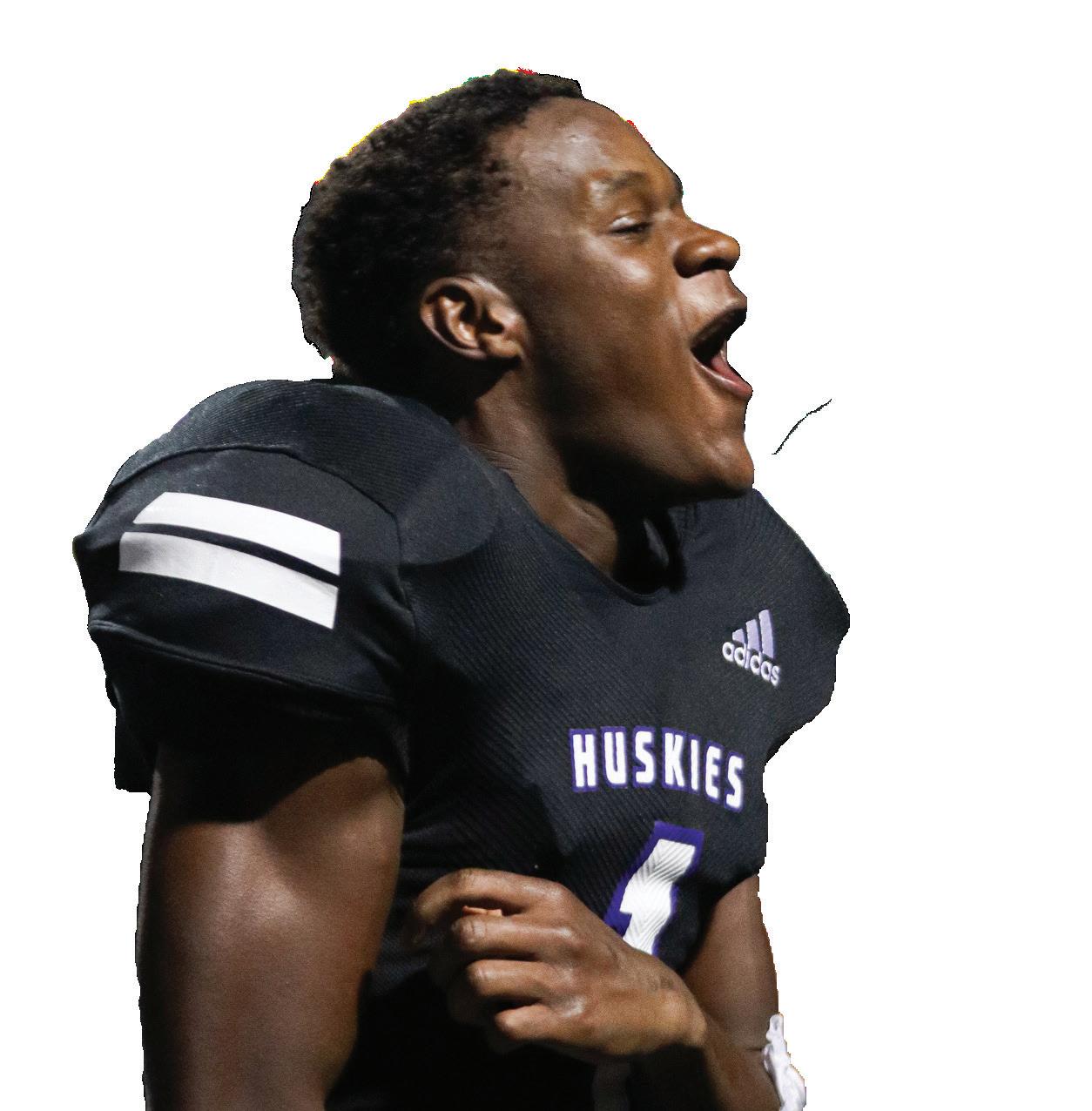 Written by Saraphina Wambi and Harper Latta, Photos by Bailey Thompson, Design by Sabrina San Agustin
Written by Saraphina Wambi and Harper Latta, Photos by Bailey Thompson, Design by Sabrina San Agustin
Junior football player Lovie Pulliam said one of the most wellknown sports myths of all time is that Black people possess natural physical talent, which helps them excel in sports.
“[The stereotype] comes from the olden times because [Black people] looked bigger and muscular,” Pulliam said. “You were depicted as that, so you have to be like that nowadays, too.”
Volleyball athlete Alayna Pearson’s mom, Joi Pearson, said all stereotypes have a basis of truth.
“People of color were in manual labor for hundreds of years. If you’re in manual labor, you [will] have bigger muscles,” Joi said.
While some Black athletes at BVNW say this imagery has not affected them, Lovie said he has felt as though he needed to be bulkier in order to fit the mold.
“Where I came from in Wyandotte, Kan., it was like everyone was the same. So I was like, OK, you’re all the same. But, when I came out here, it’s like, ‘you got to look a certain way because you’re different from the rest of us,’” Lovie said.
The pressure from this expectation has impacted some of these athletes
since their childhood. Lovie’s mom, Laura Pulliam, said when her kids were little, parents would set standards for her children without actually knowing them.
“[They were] expecting our son to play basketball, [but] Lovie was very much interested in playing baseball. Some people didn’t understand that in the beginning,” Laura said. “Sometimes people don’t realize what they’re saying is a stereotype, or negative, or racist, so I just try to be kind and explain: that’s not OK.”
Similarly, sophomore volleyball player Amya Kador said when she was younger, she felt the need to be the best on the court to avoid being overlooked because of the lack of Black representation in volleyball.
“I want[ed] to go above and beyond to be noticed,” Amya said. “I was playing, and I wanted to stand out…I felt that social pressure.”
However, Amya said as she has continued to mature, some of the social pressures of playing volleyball as a Black girl have faded, as there are more Black girls on the Northwest team.
Junior football player Trey Ridley explained how despite the prejudice toward Black athletes, the prevalent
representation of these athletes in football has helped him feel more accepted and welcome.
“The numbers show that it’s mainly Black athletes in professional sports,” Ridley said. “No matter your race, the football team is very accepting of Black athletes, and I have never experienced discrimination on the field from teammates, other players or coaches.”
Likewise junior volleyball player Lainie Douglas described the volleyball team as very inclusive. Due to the diversity of the team, Douglas said she has never felt as though she has been held to a higher standard because of her skin color.
“No matter [anyone’s] skin color, anyone can do anything,” Douglas said.

However, senior volleyball player Akayla Kador agreed with her sister, Amya, saying that with being Black comes the social pressure to excel in sports.
“I feel like as a Black athlete, your every movement gets micro-analyzed to the point where you feel like you can’t do anything because you’re going to be seen as angry…or not coachable,” Akayla said.
Alayna Pearson’s older sister Meiko, who is a 2020 Northwest graduate and

Senior Alayna Pearson is the libero for the varsity volleyball team (Photo by George Buckley). Sisters Akayla and Amya Kador both play for the BVNW varsity volleyball team and celebrate on the sideline of a game along with head coach Molly Haggerty.

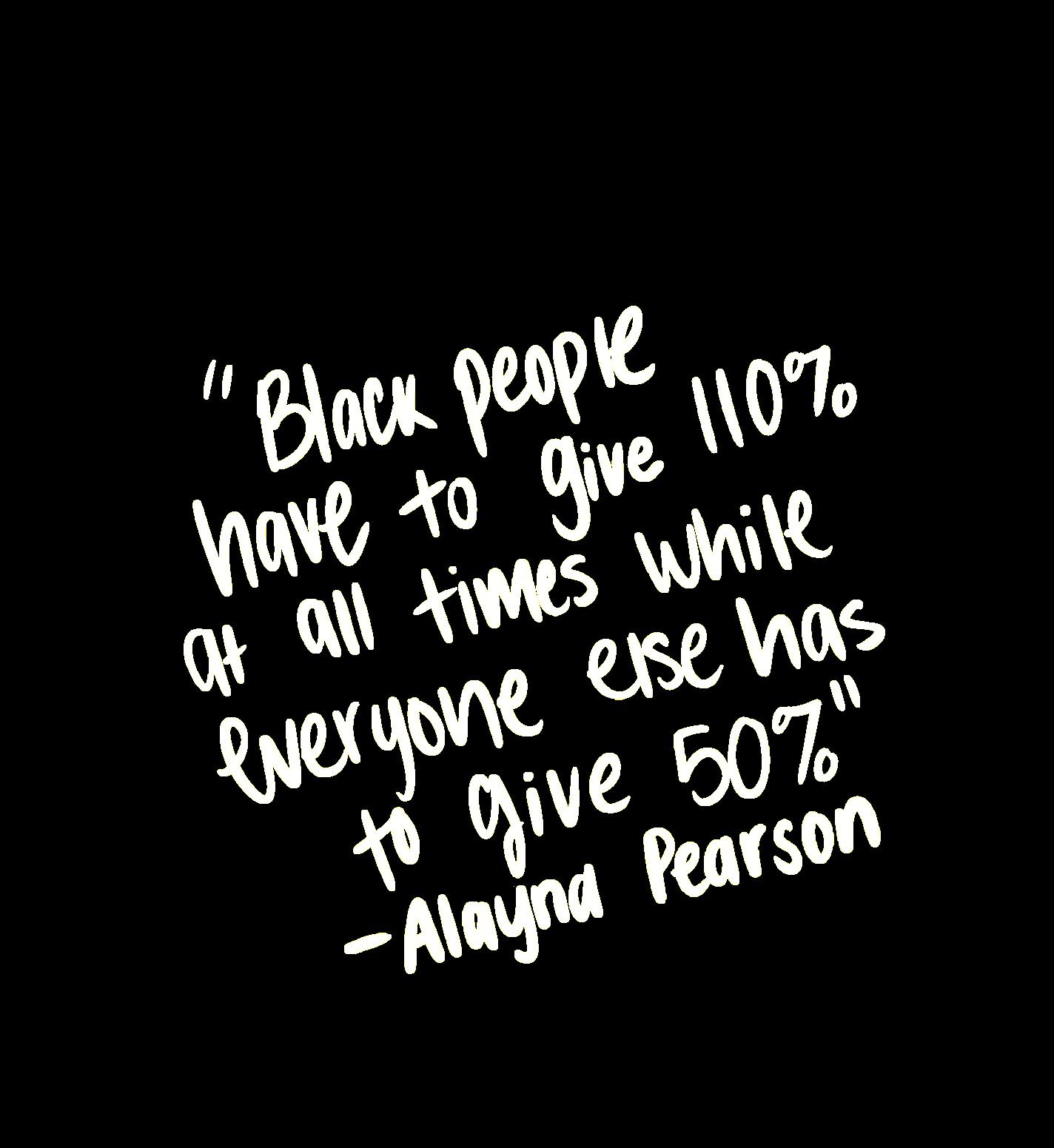
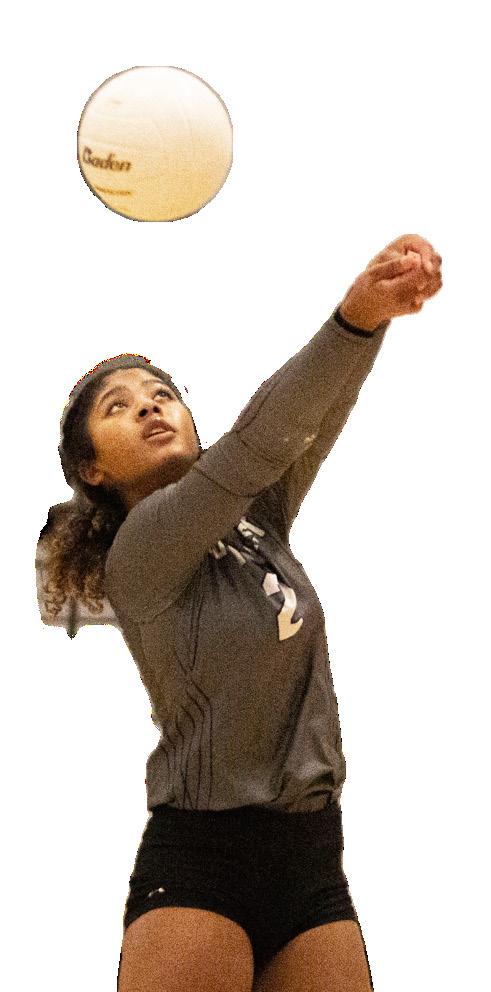
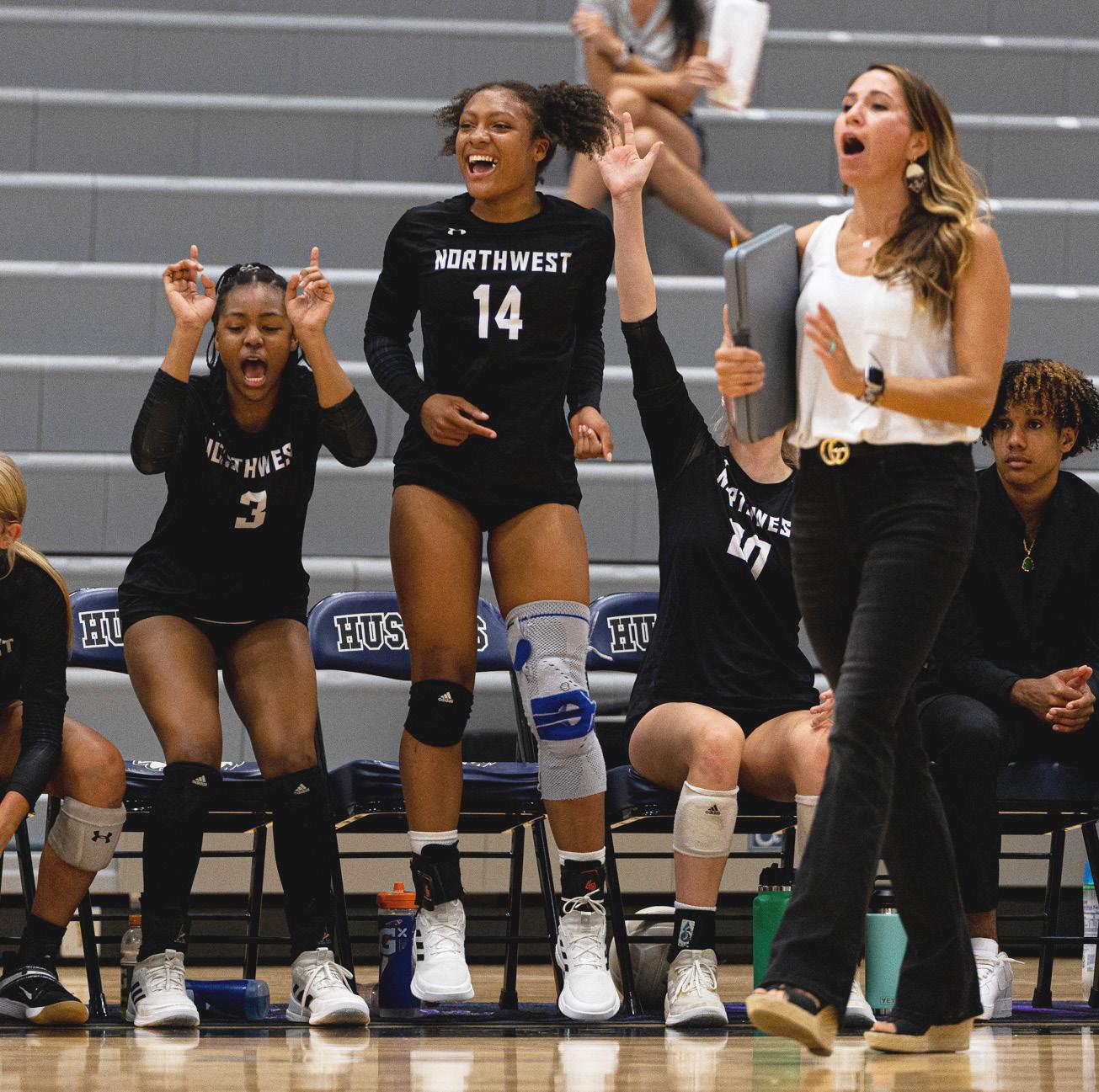




now plays volleyball at Missouri S&T, said she found herself in a similar situation, of constantly needing to regulate herself at a young age.
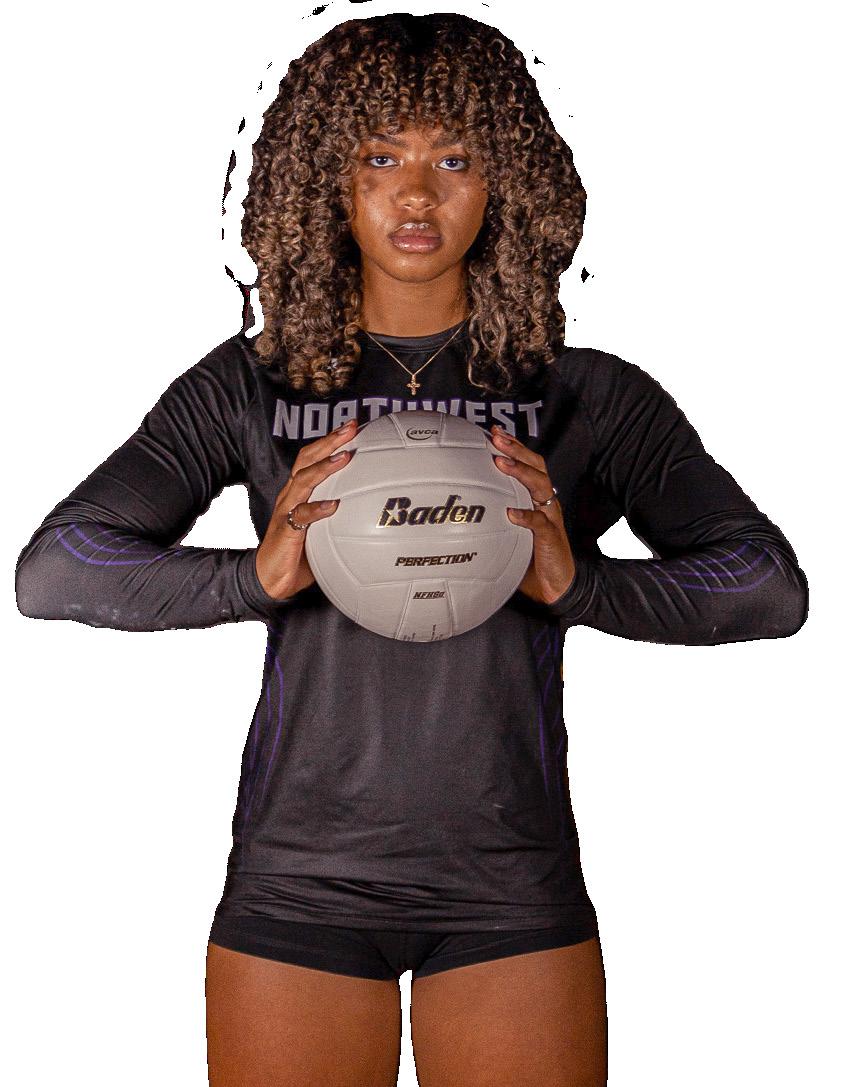
“I had always felt that I needed to keep my composure…I didn’t feel like I could show how I truly felt or show much emotion other than gratitude for just being a part of the team, or anything like that,” Meiko said. “I guess I didn’t want to be perceived as that angry girl on the team, or that girl who, you know, is asking for what she doesn’t deserve.”
Akayla continued, saying one of the biggest pressures of being a Black athlete is also the pressure she puts on herself.
“If you go into a gym and everyone looks different than you…you don’t wanna just stand out because of that; you wanna stand out because you’re good, so you push yourself more,” Akayla said.
In regard to feeling pressure to conform to the perfect standard, not all athletes feel the need to stand out in looks alone. While Lovie continues to push himself, he said he has felt some relief by choosing to focus on a growth mindset.
“Honestly, it feels like some stress is off my shoulders. I just gotta keep on going, get better every day,” Lovie said.
In contrast, senior volleyball player Alayna Pearson said she ends up standing out as she is often the only
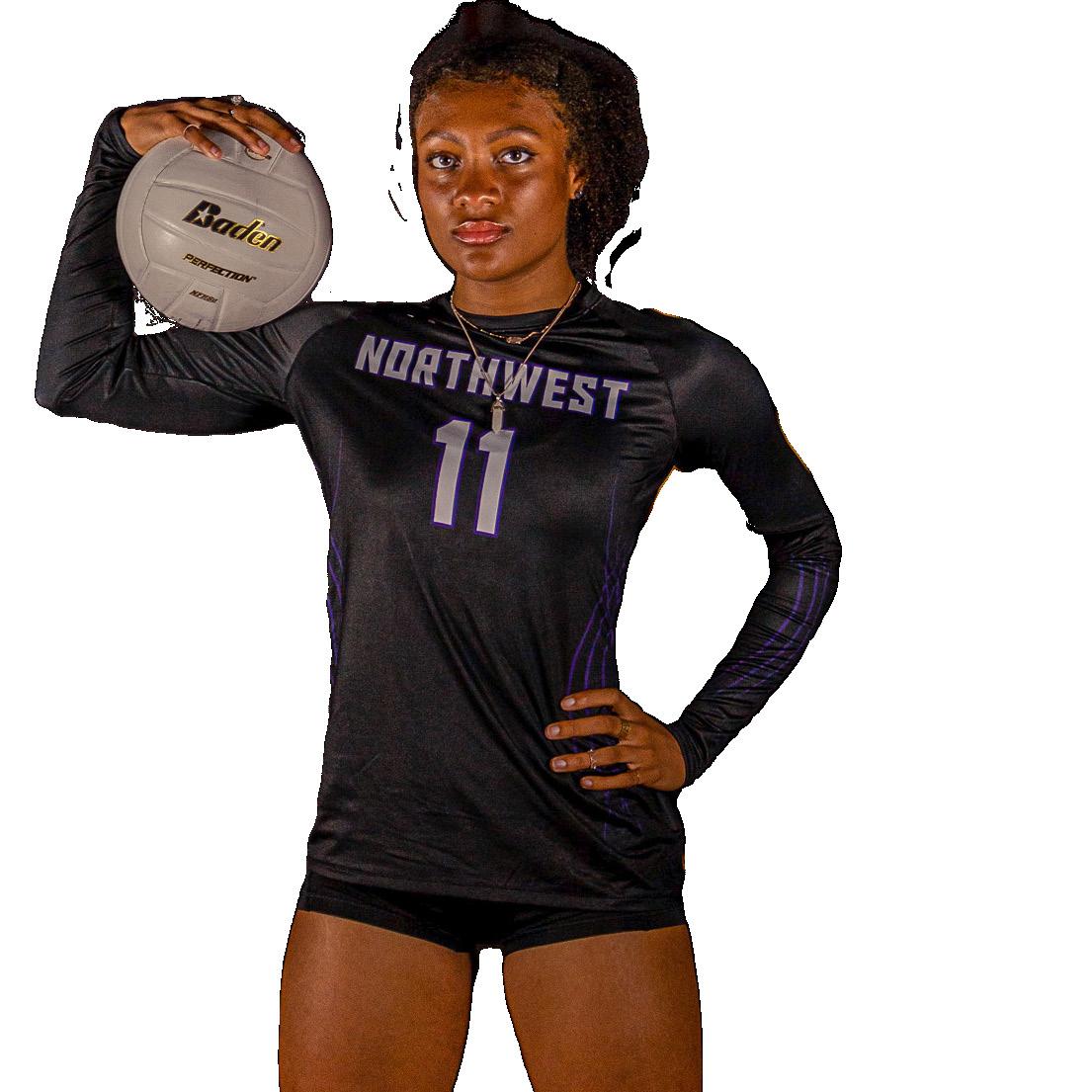
Black girl on her team.
Almost every year on her club volleyball team, Alayna said she felt disadvantaged and was not given a fair shot for certain things, which led to continual discussions with her coach.
However, that circumstance is a reality for many Black people, according to Joi Pearson.
“As a woman of color, in order to succeed in this country, no matter what area you are in, you must do 110 percent to get 50 percent...unfortunately, racism is real,” Joi said.
To elaborate, Lovie said he thinks Black athletes are held to a higher standard than their white counterparts just because of their skin color.
“It’s like, [white people] can do the bare minimum, and people don’t really care, but if it’s us [Black people], you gotta start and finish with a little bit more,” Lovie said.
Because of this, Alayna said she thinks the ‘Black athletes are better athletes’ stereotype comes from the idea that Black people are constantly being rooted against by the white majority, leading to their willingness to work even harder to accomplish something.
“We know we’re not gonna be given the benefit of the doubt, so I think we grow up knowing that we’re [always] gonna have to work just a little bit harder than everyone else,” Alayna said.
Head volleyball coach Molly Haggerty added most of
people’s unwillingness to accept that sometimes, someone just outworks you.
“They see athletes outperforming other athletes on TV, and I think insecurities step in,” Haggerty said.
However, Haggerty also mentioned she thinks this stereotype is directly correlated to the increasing amount of diversity within athletics.
“Whenever you expose people to more diversity, you’re gonna see more intolerance,” Haggerty said.
While the football team this season has not had any known incidents of racism, head football coach Clint Rider said he works with the other coaches to stop the racism before it starts, and hopes his players do the same.
“I think that’s something that, as coaches, we have to be vigilant about,” Rider said. “I think our players have to be vigilant as well, that if they hear any stereotypical statements of anybody of any race, we want to make sure that we’re being forthright with that and stamp it out quickly.”

Rider said he has tried to avoid the intolerance that can come with additional diversity, and instead tries to create an inclusive and successful environment.
“I think that everyone, of any race and nationality, has the opportunity to excel in the game of football,” Rider said. “I don’t think there’s a difference, whether it’s physically, athletically or from a mental standpoint. I think all those things are based upon an individual’s ability to be able to do their job well.”
Though the stereotype can cause insecurity for those who do not meet the standard, Meiko said to ignore the pressure it brings and keep focusing on bettering yourself.
“Don’t let anybody tell you, you’re less than what you really are…You can get anywhere as long as you’re competent, and yourself and believe in yourself, regardless of whatever anybody else tells you,” Meiko said.
Along those lines, Laura Pulliam advised parents and coaches to not feed into the stereotype and allow their children to succeed.
“I think we should just let kids figure out what they want to do and maybe not push our dreams and beliefs on them,” Laura said.
Junior Trey Ridley rests in-between plays during the varsity football Jamboree.

Junior Lovie Pulliam suits up for a BVNW varsity football game as a running back.
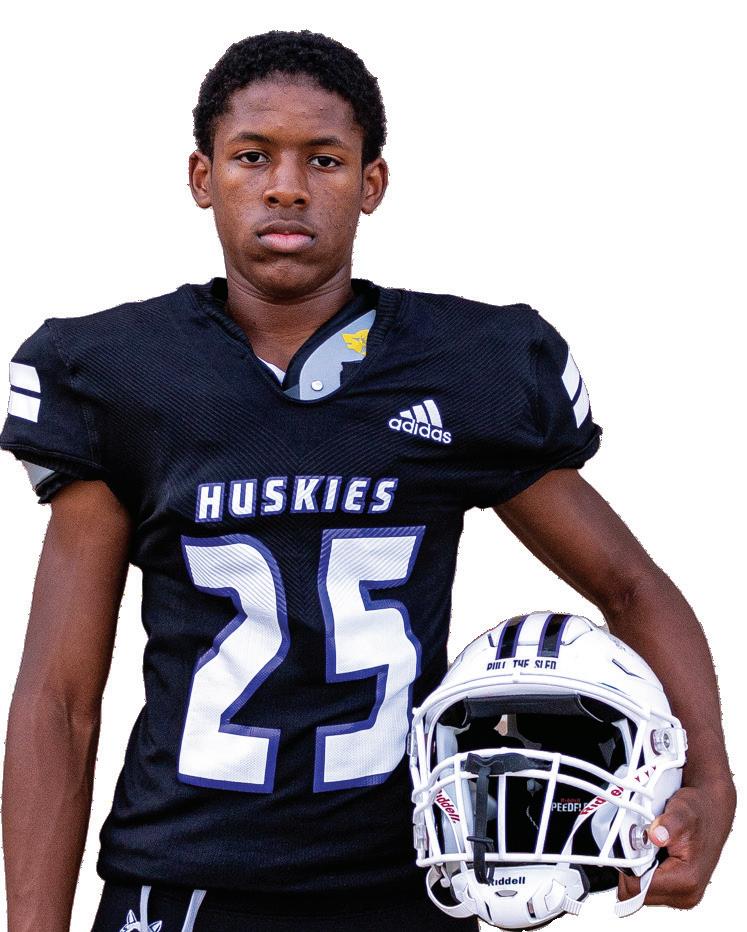

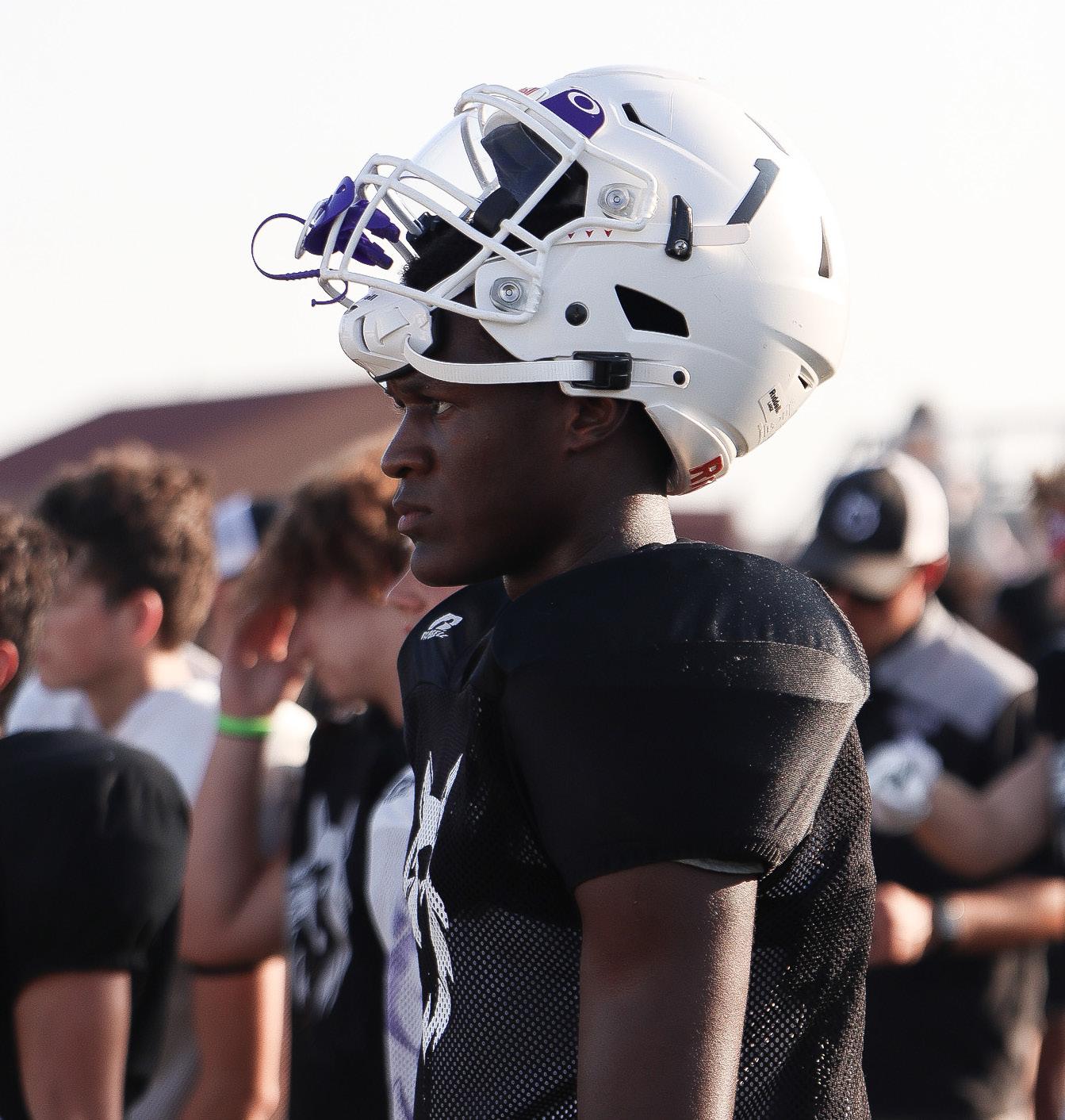

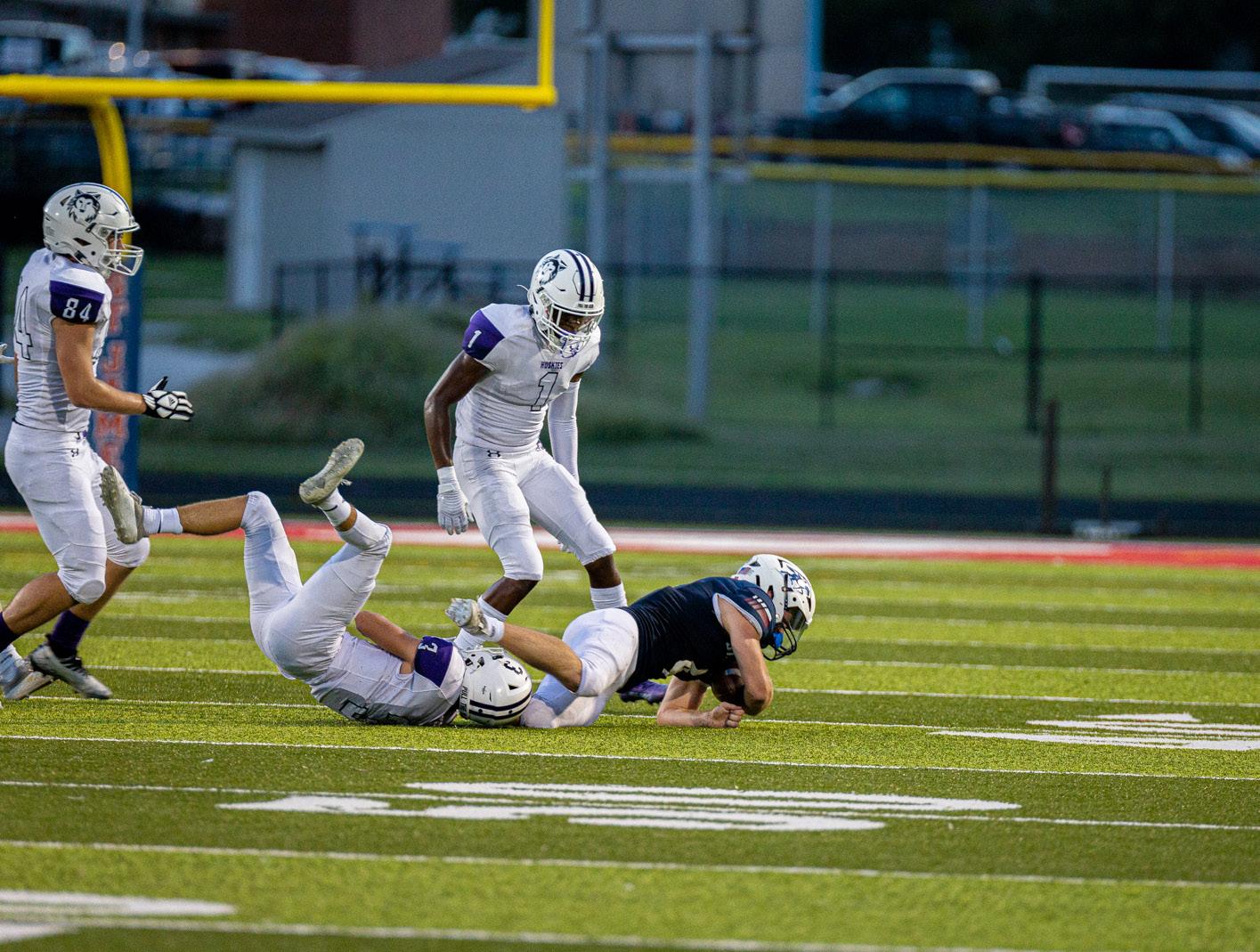
Ridley assists a defensive play during the varsity football game against St. James Academy.

Music is an essential part of BVNW students' school days and they use it to cope with their daily lives
Written by Alex Cowdrey and Lexi Jones, Photos by Lila Vancrum, Design by Prajwal AdhikariSophomore Ben Silin said earbuds are part of his daily look.
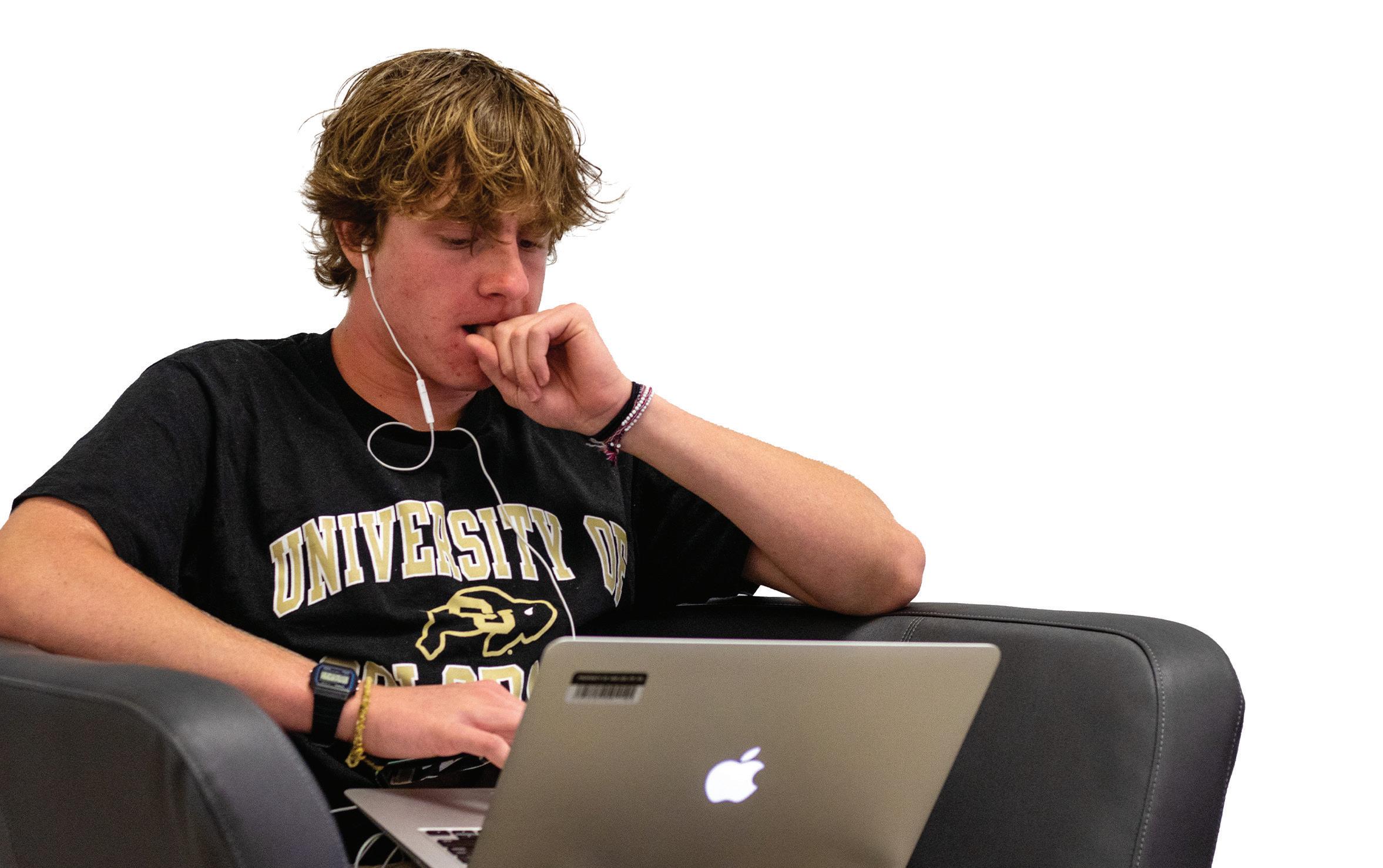
“I’m always listening to music. I usually have at least one earbud in,” Silin said. “I always walk around with them because that’s the best time to listen to music.”


Teachers make the ultimate decision

music as a tool, said he does not mind letting his students listen to music if it is an appropriate time.
“I want kids to know logically when it’s a good time [to listen to music],” Mahoney said. “You're [old] enough to be able to make that decision on your own.”
In contrast, French teacher Breanne

release or you need an escape, and music can be that,” Buchanan said.
Buchanan also mentioned she sometimes will allow students to listen to music when they are working independently or after a test.
“If they ask in French, there's no reason for me to deny that, but during a class activity when I'm
Psychology teacher Heidi Gipple, explained the importance of what type of music students usually work better with.
“[Listening to] things that are more instrumental and classical music, a lot of people are more able to pay attention to things, while they listen to music. They're typically [better because] our brains aren't really built to multitask,” Gipple said.


Gipple also described how music can be a good resort for students.
“Our brains release a hormone called cortisol when we are willing to bring our stress levels down. [Our] brains like when we listen to really soothing music; our brains really respond to that and really enjoy kind of that calming nature,” Gipple said.
Gillam said she uses music to process her more complex emotions, such as anxiety or grief.
“A lot of times, I listen to it to get my mind off a stressful situation. If I can focus on the words or the beat, I don’t have to think about the stressful thing,” Gillam said.
Similarly, Silin said he listens to music when he gets overwhelmed. Music can help him deal with his ADHD, Silin added.
“When I'm not taking my ADHD medicine, music often helps me concentrate and have something going in the background while I work,” Silin said.
Silin said he likes to listen to calm, relaxed music. He said he listens to a lot of different artists, but some of his favorites are The Lumineers, Caamp, Jack Johnson and Bob Marley. Silin said he has listened to Bob Marley since he was young because he finds tranquility in his lyrics, which stays true to this day.
Left: Sophomore Ben Silin discovered music was an escape for him at a young age. “I had really bad sleep insomnia, so I used to listen to [Bob Marley] to go to sleep,” Silin said.
Right: Senior Rachel Gillam has always had a connection to music. “I’ll definitely be walking around with my airpods in, listening to music,” Gillam said.
“Almost all of [Bob Marley’s] most famous songs were about him wanting peace and everyone calming down,” Silin said.
Similar to Silin, Gillam explained when overwhelmed, she finds relief in listening to her favorite artists Sam Smith, Olivia Rodrigo and Conan Gray with her Airpods.

Gillam said music is soothing because it is something that ties people together.
“Music, while it's super great to connect with [on your own], it also creates connections [with other people]. It’s not just about the oneon-one experience with you in the music; it's also about finding other people you can relate to,” Gillam said.
Although Silin said he enjoys listening to music by himself, he also said he likes to listen to it with other people who have the same music interests as he does.
“I love listening to [music] by myself because it just gets me in a good headspace,” Silin said. “When you're with people, showing them different songs and
building off of each other, [playing songs back and forth] is a good way to find different music and become more informed about it.”
Silin also mentioned he likes listening to music in several different ways.
“I do use Apple Music just to listen to music through headphones, but I love listening to CDs and vinyls at home,” Silin said.
Overall, Silin explained how he thinks music is a great escape.
“If you can incorporate [music] in your daily life, then it often helps a lot,” Silin said. “If you're ever going through a tough time or a good time, adding music will make it 100 times better.”









 Written by Jeny Jithesh and Ashley Adams, Photos by Arpa Das, Design by Lindsay Maresh
Written by Jeny Jithesh and Ashley Adams, Photos by Arpa Das, Design by Lindsay Maresh

enior Alicia Pham was born in America to newly immigrated parents from Vietnam.
As a second-generation immigrant, Pham said her family faced struggles with the language difference between the two countries.
“My parents don’t really speak English. That has been difficult for my family, mostly because we have to do a lot of translation,” Pham said.
Senior Angie Reyes said she also faced barriers as a child of non-native English speakers. Reyes’ parents left Honduras as teenagers to come to the United States. She said they had known of each other in Honduras, but they began their relationship in America.
Reyes said once her parents began their relationship, she was born as a second-generation immigrant.
According to Reyes, her parents speak fluent Spanish and very little English. This left Reyes and her older sister to learn English on their own.
“My parents spoke pretty broken English when I was little,” Reyes said. “It was mostly my sister who taught me.”
By the time Reyes had enrolled in school at Timber Creek Elementary in Raymore, Mo, she said she had already become accustomed to speaking English. However, Reyes said her school still insisted she be in a special program.
“I was fluent in English, but just because I spoke Spanish they put me in an ESL (English as a Second Language) program for years,” Reyes said.
For Pham, the difference in language meant she missed out on certain experiences, such as not being able to go to parent-teacher conferences. Even outside of the language barrier that divided her family from others, Pham said there were other aspects that made her life different.
“I feel like there’s a lot of disconnect because my parents don’t really understand the culture here,” Pham said. “Whenever we do things in public,
maybe other people see it as weird or unnatural because [people in public] don’t really associate it with our [Vietnamese] culture.”
Pham said her perception of judgment from the public eye has caused her to feel pressured to change herself.
“I think most of us who are [people of color] have felt a pressure to adapt to American culture. Growing up, I really rejected Vietnamese culture… you didn’t see a lot of people who look like you on the screen, and you didn’t really have people who are like you in your community, either,” Pham said.
Reyes also said she felt she was going through experiences her peers were not.
“Living in America feels lonely sometimes; there were just things my parents couldn’t really teach me,” Reyes said. “I had to do anything related to school by myself; I didn’t have anyone to help me with homework.”
said. “It’s definitely something America should become more used to.”
Reyes said that though it was difficult for her to find ways to connect to her Latin heritage, she was able to relate with friends who also understood her experience.
“A lot of my friends are also secondgeneration immigrants,” Reyes said. “Even if their parents are from different countries, there’s a lot of things that are a part of the core immigrant experience that we can relate to each other on.”
-ANGIE REYES
Although Pham also initially struggled to accept both her American and Vietnamese cultures, she said that as she has become older, her view has changed. Pham said her difficulties communicating with her grandparents helped her realize how important it was to embrace her Vietnamese customs.
Reyes presents different versions of herself in different settings. She said sometimes she feels like she cannot act the same way at home that she does at school.
“At home, I can be myself much more freely. But, whenever I’m at school, I feel like I have to turn into my ‘American self,’” Reyes said. “I feel as though I have to be more palatable to my classmates.”
Reyes said her family’s culture is not the standard at American schools. She does not see a lot of familiar culture outside of her own home. Reyes said one way the United States could be more representative of Honduras would be to have more Latin music and food.
“My favorite music is Latin music; I grew up with it. There are so many classics that I think are amazing,” Reyes
“You see your grandparents getting older and you realize you can’t talk to them. You just spent most of your life rejecting their entire life view,” Pham said. “And then you can’t even speak their language so when you are with them, you don’t even know what they’re saying.”
Though she said she regrets not being able to connect with her Vietnamese heritage earlier, she now has a much greater appreciation for it.
“Before, I didn’t really know enough about it to appreciate it. Now that I’ve actively tried to learn more about the culture, I realized there’s a lot of cool things that I didn’t really participate in before, such as Lunar New Year,” Pham said. “[There were] huge celebrations that I was never a part of as a kid, just because I didn’t want to be seen as that other weirdo.”
Similarly, junior HarAnsh Singh Gugnani said he faced many of the Junior HarAnsh Singh Gugnani moved to Kansas at the age of two, and said he has had a positive experience living here. “Being a first generation immigrant you usually hear a lot of bad stories about how people treat you, but I find the community here in Blue Valley to be very accepting and inclusive,” Gugani said.
General living in America feels lonely sometimes, there were just things my parents couldn’t really teach me.
same experiences growing up as a first-generation immigrant from India. Singh said he moved to America when he was almost 2 years old. Though he came to Kansas at an early age, he said he still felt different from other kids at school.
“I have always stood out from the crowd. I always had a turban on, even in elementary school,” Singh said. “Now, I have a beard and so you know, everything just stands out.”
Singh follows Sikhism, a religion founded in Punjab, a region of India from where he and his parents emigrated. He said finding and connecting with other Sikhs throughout his time in school was next to impossible, especially in elementary and middle school.
“In the whole feeder system, I was the only [Sikh] until about my eighth grade year,” Singh said.

School was also an obstacle for Reyes. But, instead of feeling isolated in her community like Singh, she felt isolated in the classroom.
“Even though I was top of my class, and tested better than most of my other classmates, [my teachers] thought that me speaking Spanish somehow took away from my English speaking ability,” Reyes said.

The test scores of Reyes proved that she was proficient, if not advanced, in English but her teachers would not let her leave the ESOL program until she left elementary school.
Like Reyes, Singh said he felt his identity was different from other students. He said that the lack of other Sikh kids to relate to in his early school days caused him to have to figure out many things on his own.
“I didn’t get many of the traditional American experiences,” Singh said. “I don’t think I relate to them at all.”
At the same time, Singh, like Pham, feels that being so far from his home country has caused him to feel disconnected from his own culture. However, Singh said he now actively participates in Bhangra, a form of traditional Punjabi folk dance, and also teaches it. He said being an instructor has helped him to connect further with his community.
“In some way or another, I’m also passing [Bhangra] down to the next generation and [I’m] upholding [my] own culture too,” Singh said.
Singh said that another way he
Senior Alicia Pham believes it is important to pass down parts of her culture to the next generation. “A part of my culture I would want to pass down are the festivities and celebrations unique to Vietnam. I would love for my next generation to be involved in such a huge part of our culture,” Pham said.

connects with his heritage is through his religion. He said he often goes to the Gurudwra, the Sikh place of worship, and is looked up to there as well.
“It’s really rewarding. Like for one, everybody there knows who I am. It’s really fun to just see all your friends there,” Singh said.
Both Singh and Pham said they have faced other struggles growing up as children of immigrants in America. Pham said she feels a constant pressure to do well and succeed in life, both from herself and her parents.
“We just realize that [our parents] sacrifice a lot to come over here, and so you feel like it’s almost disingenuous if you don’t try to return that same sacrifice of just giving it your all to academics,” Pham said.
Singh said he also feels this burden when it comes to representing himself and creating his image.
“My parents always told me that I have six little cousins looking up to me. So if I don’t set the bar pretty high, then they’re going to become something that’s not socially acceptable in India,”
Singh said.
Despite this, Pham said there are ways to alleviate the pressure.
“I think it’s important that all of our voices are heard. Reaching out and branching those connections can help kids who might feel left out because of their skin color,” Pham said.
Being a child of an immigrant can cause struggles as Reyes said, but she is also reminded of the things she is thankful for from her parents.
“I’m grateful for having a worldview,” Reyes said. “A lot of kids have never been confronted with anything they aren’t comfortable with. Growing up, I was very much aware of how lucky I am.”
First and second generation immigrant students often experience life through a different lens than those who have always lived in America, with families that also grew up in the United States. Through bonding with their peers and community, these students said they have been able to adjust to the pressures of adapting to American society.
‘Book Tok’ has been a popular Tik Tok trend since 2020, establishing itself as a series of videos to discuss and recommend books and authors, such as Colleen Hoover, who’s popularity has grown from this trend
Written by Julia Moser, Design by Regan SimeonStumbling across the Tik Tok trend about a year ago, ‘Book Tok’ has given junior Mallory Brown more motivation to read even though it is something she already enjoyed.
“I really enjoyed reading but I didn’t have a ton of motivation. So, once I came across ‘Book Tok’ I was like ‘Oh dang’ because I saw so many people reading so many books,” Brown said.
Brown is currently reading It Ends With Us by Colleen Hoover, a romance novel introduced to her from ‘Book Tok.’ Brown said she has really enjoyed the book so far as the style of writing appeals to her.

“I really like the style of writing. I think it’s really fun and it’s been super good,” Brown said.
Although Brown said she typically enjoys reading dystopian books, Tik Tok has broadened the genres which she reads, such as romance. She said she sees much more of a selection.
One of the main reasons Brown enjoys ‘Book Tok’ is because she said it is fun to be able to talk to people about the books. She said she likes seeing what other people have to say about a book.
“Just like seeing other people’s reviews on books and seeing the diferences. And especially if there’s, [a book that] everyone’s loving, I love having the option to be like ‘I want to read that and I can,’” Brown said.
For senior Bella Hart, Verity by Colleen Hoover was the frst book she had read in a long time that was just for her enjoyment. Hart said it was about topics she was actually interested in, not just what students are forced to read in school.

“It was actually a modern story and incorporated romance, which you don’t really see much in school,” Hart said.
Hart found this book as well as many others from Colleen Hoover after it was recommended in her ‘Book Tok’ feed. She said when she started seeing people on Tik Tok recommending books, she thought it might be interesting.
Prior to this, Hart said she used to like reading a lot when she was younger, but as she entered middle school and high school, she pushed it away because she was too busy.
Hart said one beneft to reading is that it makes her feel like she is doing something productive that does not require much focus. She also enjoys how you get to learn something new.
One disadvantage Hart said she sees in ‘Book Tok’ is its repetitiveness.
“Sometimes it can get a little repetitive I guess because they like to recommend the same books. And once you read like the fve books then you’re done with it,” Hart said.
However, Hart said she is a big fan of ‘Book Tok’ and enjoys watching the videos.
“I do like watching book tok. Also like videos on YouTube about people and what they are reading,” Hart said. “I fnd it really interesting to just hear about the books.”
Senior Liza Titovets found a love for reading for the frst time after discovering ‘Book Tok’ during quarantine in 2020. She said she was never into reading because she could not fnd a genre that she liked.
“You wouldn’t think how many choices you have, but it really shows how diverse every genre is and just how many books can be picked,” Titovets said.
During quarantine, ‘Book Tok’ infuenced Titovets to purchase a Kindle, an electronic reading device, which led her to read almost all of Colleen Hoover’s books.
Her favorite book from Hoover is November 9, which includes plot twists that sparked Titovets interest. She also said it is composed interestingly because the book switches between characters each chapter.

Titovets said in mystery and romance genres, such as November 9, there are plot twists which she should not accept.
It was like once [I] started reading it and I couldn’t stop,” Titovets said. “I’ve never experienced it in my life, it was really new.”
A lot of her readings came recommended from ‘Book Tok,’ according to Titovets.
“It’s a good way of not searching for something to read. Instead [the creators] just give a short description, it catches your eye, and then you’re like, ‘I have to read that,’” she said.
Titovets recommends everyone try reading because it allows people to learn more.
“Try reading. Even if it’s a short book, just try it,” she said.
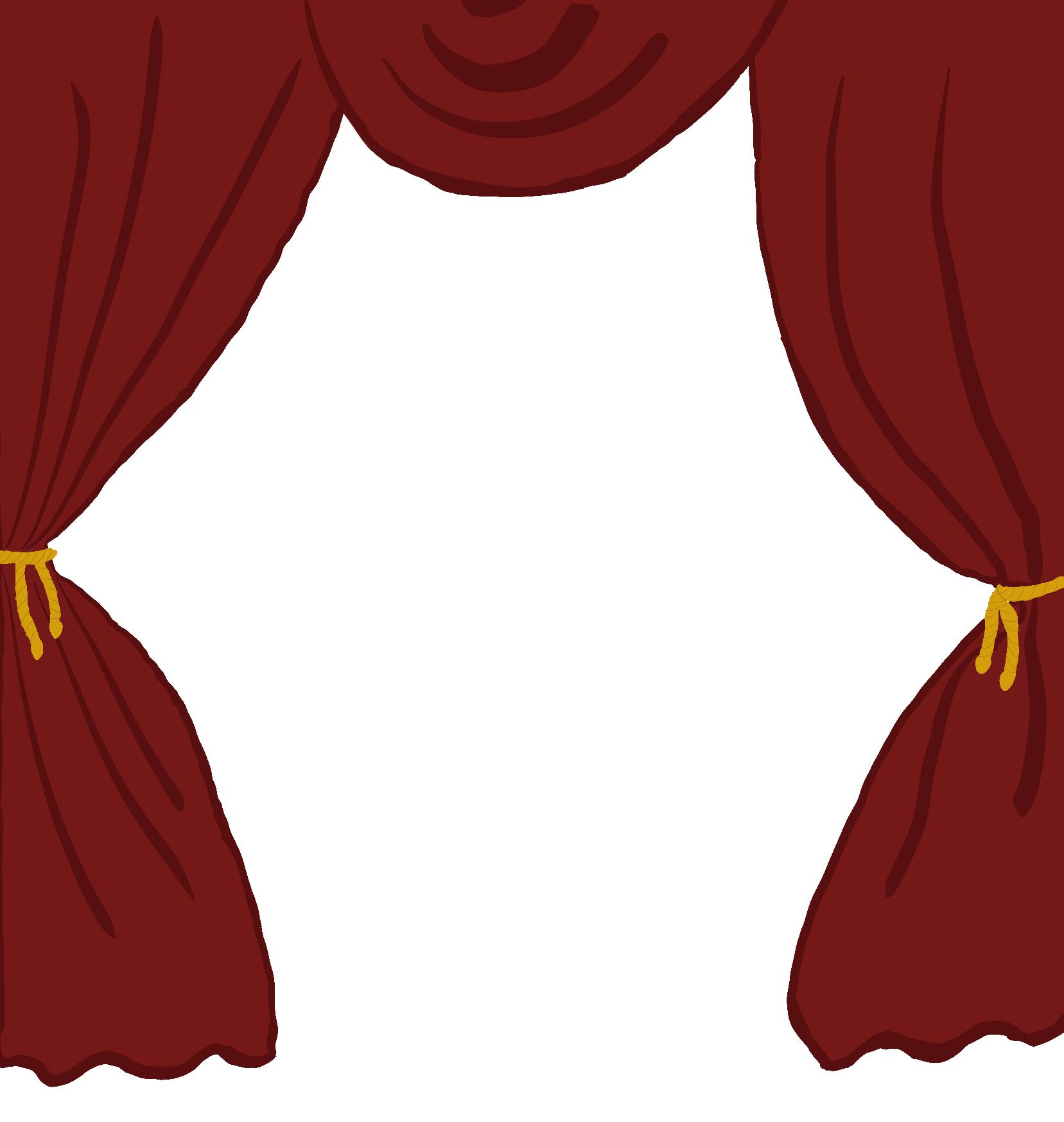

Senior Stella Woodall described feeling exhilarated as she stepped onto the Northwest stage for the first time. But in her moment of glory, she noticed a lack of student attendance in the audience.
“There’s definitely a stereotype surrounding theater, and people don’t necessarily think it’s cool to go watch the musical,” Woodall said.
Teayom Karimpourian said there tends to be a negative stigma surrounding theater among high school students. Karimpourian is an active member of the BVNW theater program and believes the notion that sports are better than the arts has been “ingrained” in American kids’ brains.
“The arts are always [viewed as] less than academics [and] less than sports because in America, it has been like that,” Karimpourian said. “People don’t really tune in to TV to watch plays and musicals; they tune in to watch football.”
Because of this negative stigma,
junior Lillian Flood says she questions her involvement in theater.
“I feel like people judge me and I am like ‘why am I doing this, can I just be athletic?’ Flood said. “But then I would always sit down and be like, ‘this is something I enjoy, so I am not going to quit because it is not worth it to sacrifice your passion for the thoughts of others.’”
Senior Brett Oplotnik shared that theater is often overlooked because theater does not involve as much school spirit as other activities.
“I think the arts in general is something that the faculty and the board of Blue Valley aren’t as passionate about just because they do love more things like sports that have to do with school spirit,” Oplotnik said.
Though Woodall feels comfortable on stage and with her peers, she also noted how many students at Northwest possess a negative idea about the theater department. She also credited that to a lack of school spirit required to watch a musical.
“School spirit is a big driving point at Northwest,” Woodall said. “But with theater, you just sit and watch a story rather than get involved in it.”
Activities Director Kelsey Bakalar said she believes the arts should be valued and recognized, but credited most of the lack of attention on theater to Covid-19.
“Everyone was seated, very close together, and everyone was speaking or singing,” Bakalar said. “That was what we were trying to avoid during Covid.”
To further emphasize theater’s underrepresentation, Oplotnik explained how the school never really acknowledged the awards he and his castmates received in the past.
“Last year, Maggie Bunch, who was the lead in the musical, and I got nominated for Blue Star Awards, but we were not really recognized,” Oplotnik said.
Blue Star is an award given by the Starlight Theater in Kansas City, based on professional judges who attend high school level musicals in the Kansas City
area. This program was established in 2003 and is modeled after the Tonys. According to their website, Blue Star provides high school students in theater with recognition of their excellence.
“Last year, they were nominated for two Blue Star Awards, and that was a really big deal for Northwest,” Bakalar said.
Bakalar also said the administration struggled with rewarding these students, as many of the awards given in theater are based on individuals and not the program as a whole.
“When the newspaper gets awards, it’s for the whole thing. Because it was individuals, it was hard,” Bakalar said, “But I did take pictures of the whole cast with the Blue Star banners rolled out to recognize them on Instagram.”
Despite the theater’s successes, Karimpourian still understands the lack of attention on theater comes from the popularity of football and other sports at Northwest.

“It is a given that [theater] is not going to be as popular as a football
game, but it is kind of sad to see more games getting covered when we are having our theater season all year round,” Karimpourian said. “There is always something going on, and I feel like a lot of those things aren’t covered.”
Bakalar concedes the point of popularity, but offers a hopeful perspective for the future of the theater program.
“It is hard not to be overshadowed by programs that bring in big money and big crowds,” Bakalar said. “But, I’m hopeful because I feel like it’s growing, and I’m hopeful that it will continue to grow.”
Bakalar said that as the theater program continues to grow, however, people will begin talking about it as frequently as big sports like football and basketball.
“At one of our spring shows, I saw some students come that I didn’t feel like were active in the theater world, but they were there to support their peers,” Bakalar said. “I think as students continue to [come], theater will gain more attention.”
Currently, Karimpourian said they are in the process of working on the musical.
“We have a fundraiser going on right now- like a patron drive- that is not being covered,” Karimpourian said. “The thing with plays and musicals is we want to get them out once they are ready and get the dates out so people know that it is coming.”
To spread the news, Karimpourian said that she would love to have someone announce the upcoming theater productions at assemblies as well as posting them on the BVNW Instagram page. She also added they have drama posters in the art hallway, which could be posted around the school.
“Usually with our posters, we have the drama poster board, like every other [activity] does, but ours is in the art hallway,” Karimpourian said. “I feel like if we had a little more [recognition], people would see it more.”
Many staff members work behind the scenes to provide for students every day to keep Northwest running smoothly
Written by Rachel King, Photos by Alivia Ozbun, Design by Sabrina San AgustinThis year, Jack Pauley joined the staff this year as a Student Support Liaison. His job is part of getting his master’s degree in Educational Administration. He helps out with school operations. Pauley said this includes setting up and communicating with other schools about sporting events and helping out the administration.
“My favorite thing to do is getting to work with the teams that are playing and make sure they have a good experience,” Pauley said.
With all of these responsibilities, Pauley said it can be difficult to manage because he can only be in one spot at one time.
“There’s a lot of things that go on each day that I could probably help out with, but it’s up [to me] to pick and choose where I help and who I can help,” Pauley said.
He said he likes how everyone has something in common and how that builds the community.
“We’re all here to enjoy our time at Northwest,” Pauley said.
Eric Cohen is the lead custodian. His job entails overseeing and ensuring that everybody does their job, cleaning up and taking care of the school.


Although Cohen has been working in the district for 10 years now, it is his first year at Northwest. He said there have been a few challenges throughout the years, like having to make adjustments on the fly, but this is also one of his favorite things about Northwest.
“Really just the ebb and flow of it. Just how everything can go from one way to another and how you react. I kind of like those challenges,” Cohen said.
Mistie Hollingsworth works as the food service manager. She is the head of the seven person team that runs the cafeteria. Along with running the team, she keeps everything in the lunch room in order.
“[I do] all the grocery orders, all of the state requirements, books that we do every day for production, do inventories, and control all these lovely women out here,” Hollingsworth said. “We are a good team.”
Hollingsworth has worked in the food service business for 33 years, at least 20 of those at Northwest. There are many things she likes about Northwest, from the environment to the students.
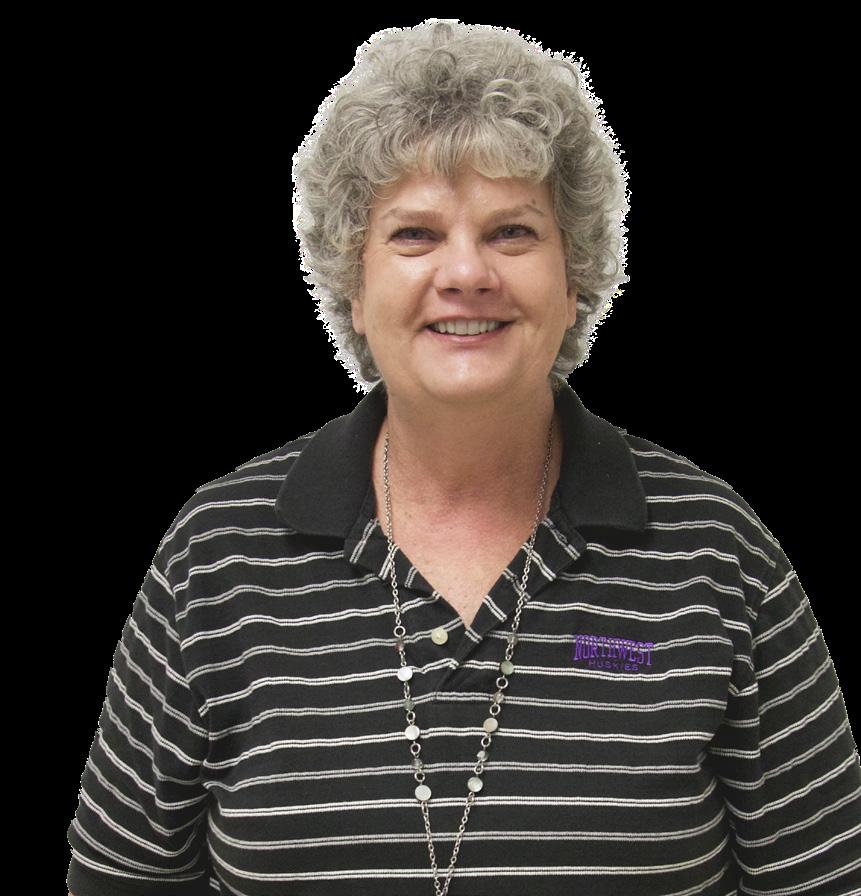
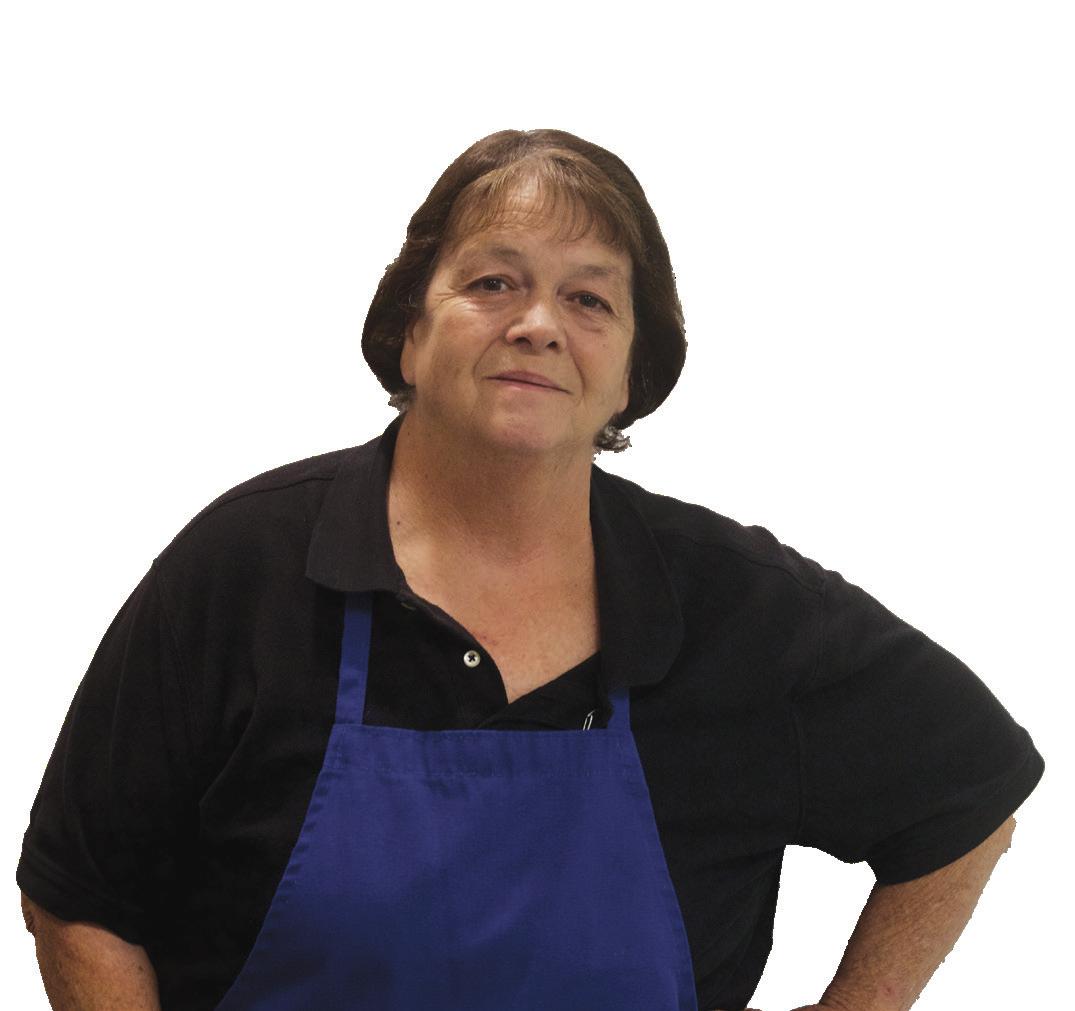
“I like the school. I like the kitchen, it’s a great setup,” Hollingsworth said. “The kids are good here. We have some really good athletic kids that come in, and they depend on lunch every day. We provide that.”
Her favorite thing, however, is the team of lunch ladies she works with and the students at Northwest.
“I like seeing my girls every day and the kids,” Hollingsworth said. “It makes a big difference.”
Carol Hess has been working at Northwest since the school opened 30 years ago as the attendance clerk. Hess said it is her job to know where all 1600 kids are at every minute of the day, every hour of the day. She also must make sure attendance is accurate, make passes and notify parents of unexcused absences. Getting over 300 phone calls a day, these tasks keep her very busy.
“It’s a challenging job, and I’d like people to understand it’s just me. There’s no department,” Hess said. “I get the calls, and I take them one at a time.”
Hess said one thing she likes about her job is that it keeps her busy. She has her responsibilities she fulfills, with small differences each day, like who she interacts with.
“It’s a good place to work. I love the environment,” Hess said. “It’s the same every day, only different.” Along with the environment, Hess enjoys getting to know the students she works with. She said getting to know the students allows her to do her job better.
“I really enjoy talking to them and getting to know who they are,” Hess said.
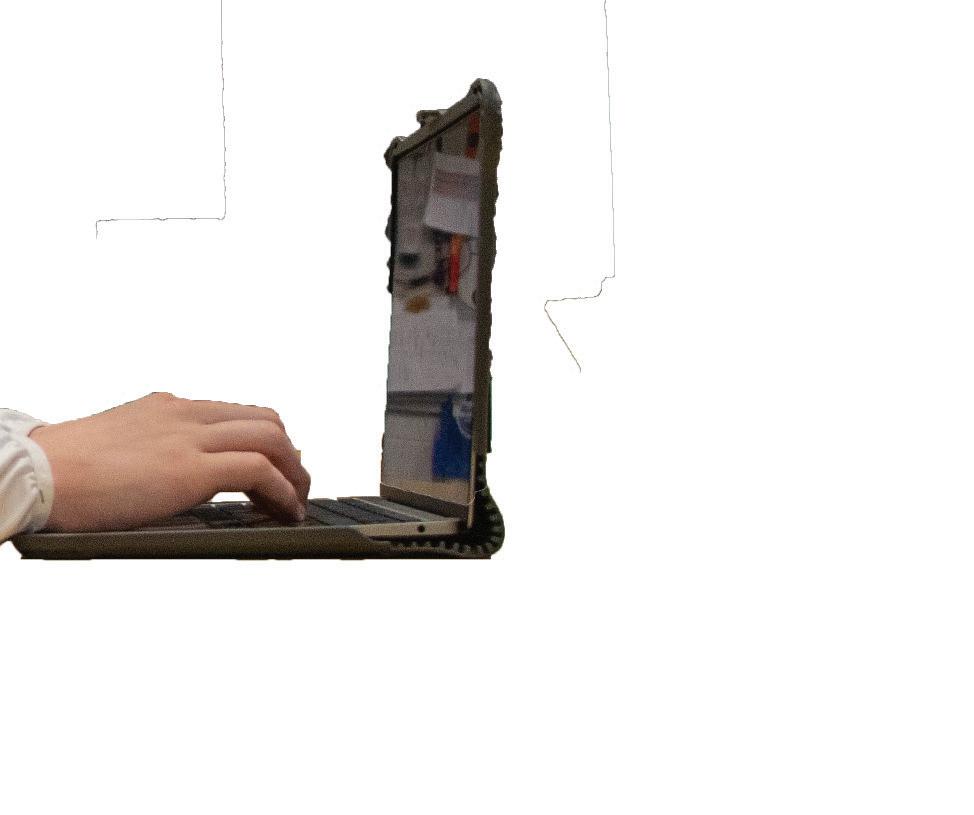
Blue Valley uses safety protocols to monitor student device activity which creates debate among students, employees
Written by Hannah Rakolta and Lindsay Maresh, Photos by Remi Nuss, Design by Avery SiggEvery day, there are people trying to infect student and staff devices with harmful viruses, according to Blue Valley’s Chief Information Officer, Brian Daley. He said it is necessary to protect students, staff and families in the Blue Valley community from these threats through proactive work at the district level.
“The folks out there that are creating viruses and malware to try to extort staff or students are always trying to stay one step ahead of cybersecurity companies that invent technology to protect [them],” Daley said. “So, you can’t get complacent. If you do, within a matter of a couple of months, the landscape changes as far as cybersecurity goes. It’s always changing, and we’re always having to stay on top of it.”
In addition to protecting students and staff from cybersecurity threats, Daley said it is important to keep students safe online by filtering what they view. While some websites
seem well-intentioned, he said they may contain inappropriate content. Therefore, the entire website must be blocked.
From junior Payton Porter’s perspective, the blocking of such websites does not seem necessary. Porter believes school officials should have some control over student computers, but at a certain point, it may cross the line into invading privacy.

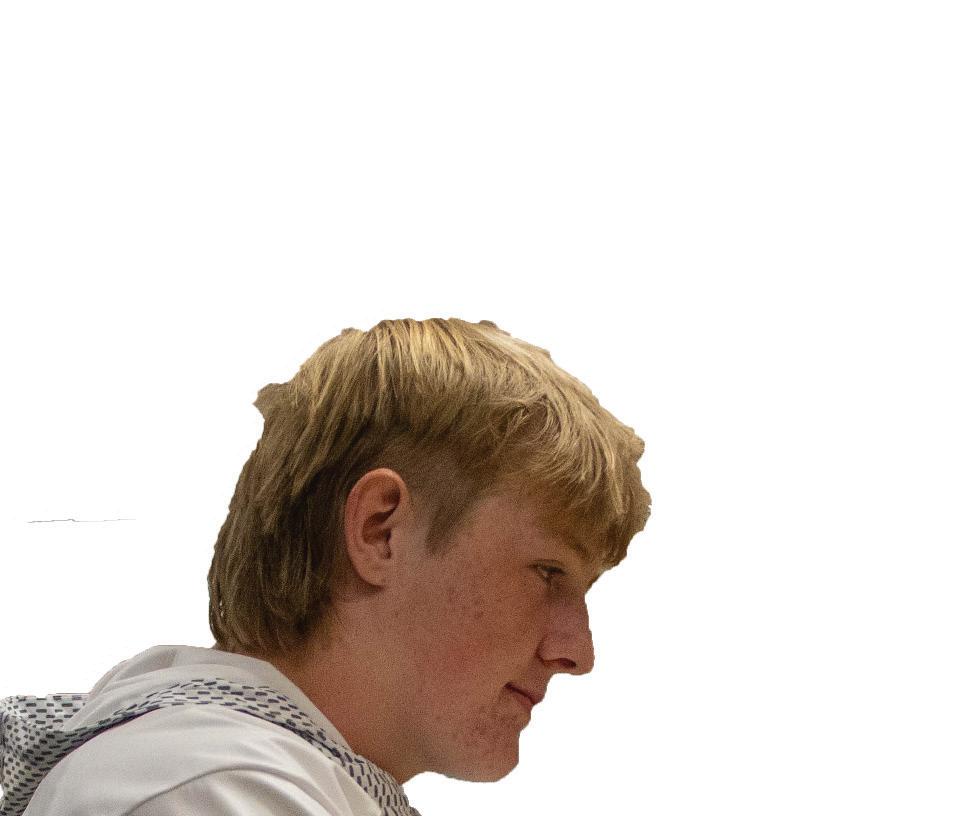

Many popular websites are blocked by Securly, a content filtering website put in place by the district, including any website with violence, gambling, drugs or other adult content. Porter said some of these restrictions are often uncalled for and inconvenient.
Daley clears up this misconception by explaining why seemingly innocent websites, like Pinterest, are blocked on student computers. Daley said this is because somewhere in the website, inappropriate content can be seen.
“It’s either we block Pinterest, or we keep it open; we can’t pick and choose,” Daley said. “For example, people found a lot of ways to display unsafe content, like adult content. In order to adhere to those rules around accessing content, we have to block it [entirely].”

Your digital footprint is important because it’s gonna stay with you forever. It’s never gonna go away,”
-PAYTON PORTER“During class, a lot of times people want to look things up and [Securly] might block the page when [the] majority of times, it really doesn’t need to be restricted. For instance, Pinterest is blocked, which I don’t understand,” Porter said. “It’s frustrating, and there’s really no reason sometimes.”
Unlike Porter, freshman Greta Preuss believes that having school devices is a privilege that should not be taken for granted; therefore, monitoring by the school is justified.
“I think that mostly, it is good and controlled,” Preuss said. “I think that when you break the rules, there should be consequences. But overall, if you use your device correctly, there shouldn’t be anything wrong.”
Similarly, Porter said she could see some positives to this system since it is mainly in place to protect everyone.
“I understand where they’re coming from, because obviously, if someone looks up something suspicious or dangerous, [the district] has the right to talk to the [student] and see what’s up,” Porter said.
Daley discussed this idea of student safety and said all of the safety protocols are in place in order to protect the community, not to invade students’ privacy.
“What we’re doing is not trying to be Big Brother; there aren’t people sitting and watching every move students make,” Daley said. “We have artificial intelligence and Securly that monitor your devices. It’s more to protect students from cyber threats or selfharm.”
Daley explained having a safesearch, content filtering software is a requirement for public schools at the state level and is not a district decision.
“In-state law requires us to use content filtering with our website; that’s something that we can’t avoid,” Daley said. “Because our students are under the age of 18, and we are a public entity, we use Securly.”
Along with the importance of being safe on your school devices, Preuss discussed the importance of paying attention to your digital footprint and the things you post online.
“If you post or use things in an inappropriate way and other people find that, they are going to think of you in a more negative way,” Preuss said. Furthermore, Preuss said other high school students know about this issue but should care more and place more importance on what they do online.
“I think that we think
Students fear an invasion of privacy on their school-owned computers from programs such as Securly.


about it sometimes, but I don’t think we think about it enough,” Preuss said. “I think that it’s not [seen] as important as it should be, and some people take for granted what they can do.”
In addition, Daley said your digital footprint will follow you throughout your life, so it is necessary to be cautious with what you do on the internet consistently.
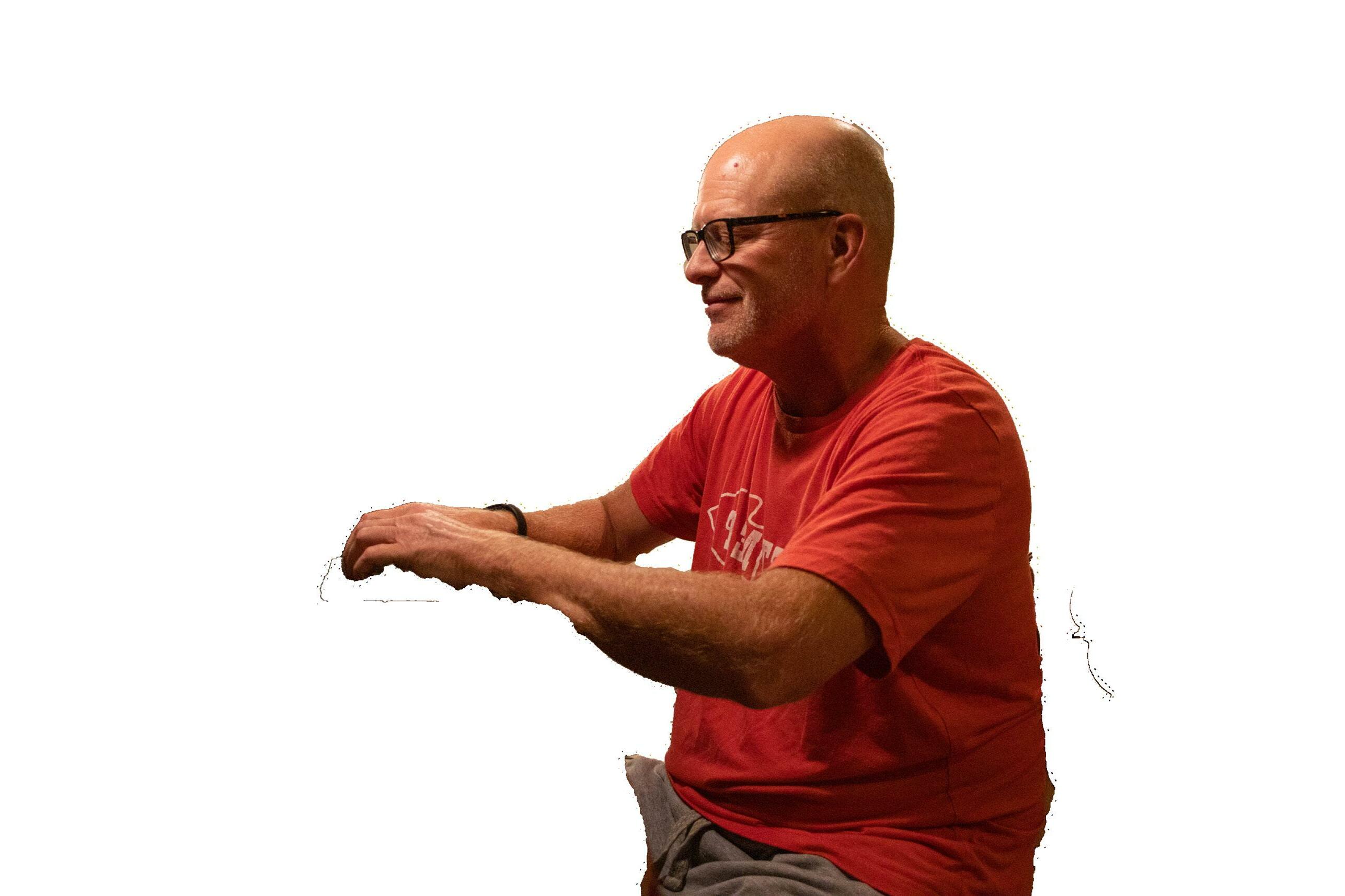
“Digital footprint is very important. You see it all the time in the news: nothing is ever deleted, and nothing is ever gone,” Daley said. “What you do today can obviously impact you in the future and really affect you. Always be [aware] of what is on social media because it never goes away.”
Similarly, Porter
said she feels having a clean digital footprint is crucial since it can have long-term effects on one’s future, and students her age should be more cautious about what they post on social media. She said, typically, teenagers do not think twice about the consequences once they hit post on any social media platform.
“Your digital footprint is important because it’s gonna stay with you forever. It’s never gonna go away,” Porter said.
Senior captain Ricki Li heads the ball during the Fat Cat Championship game againt Blue Valley West, Sept. 3. “West has been a good team for the last few years, so beating them definitely boosted our confidence,” Li said. The Huskies defeated the Jaguars, 4-0. (Photo by Lila Vancrum)
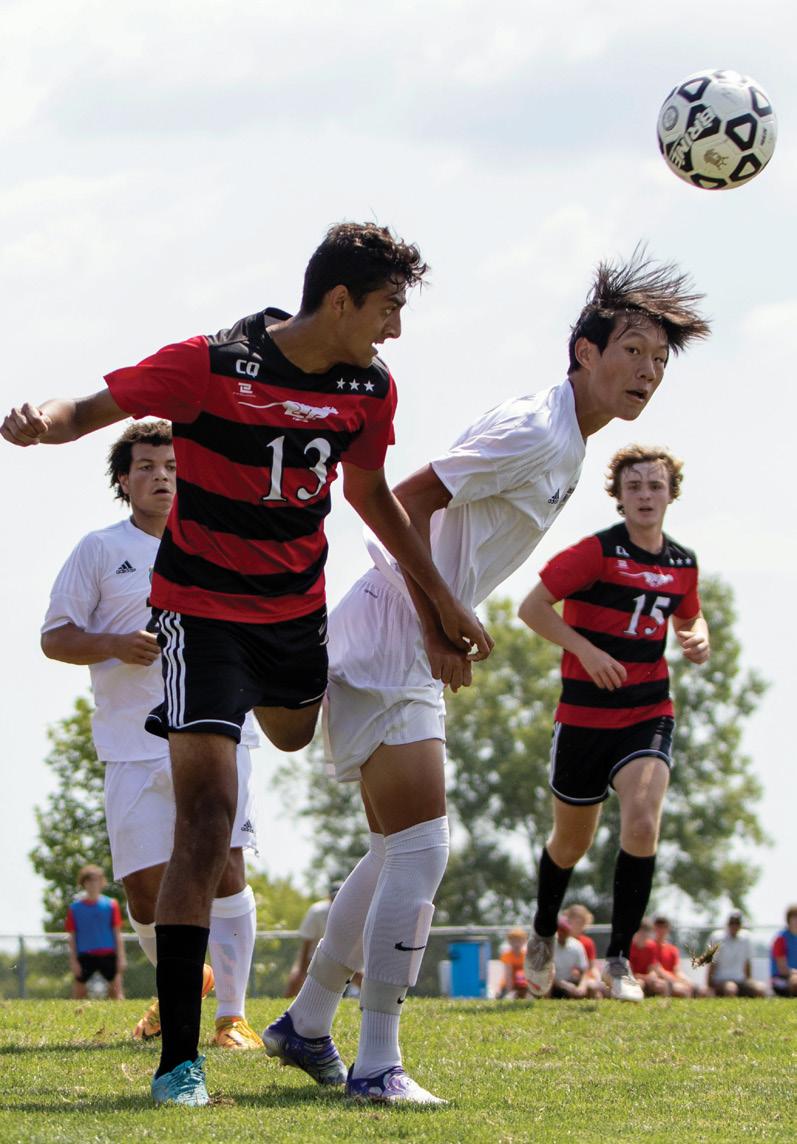
Seniors Avery Ahlers and Akayla Kador celebrate during their game against Olathe North, Sept. 6. “I have never been on a team with as much passion and love for, not only the sport, but each other,” Kador said. (Photo by Bailey Thompson)
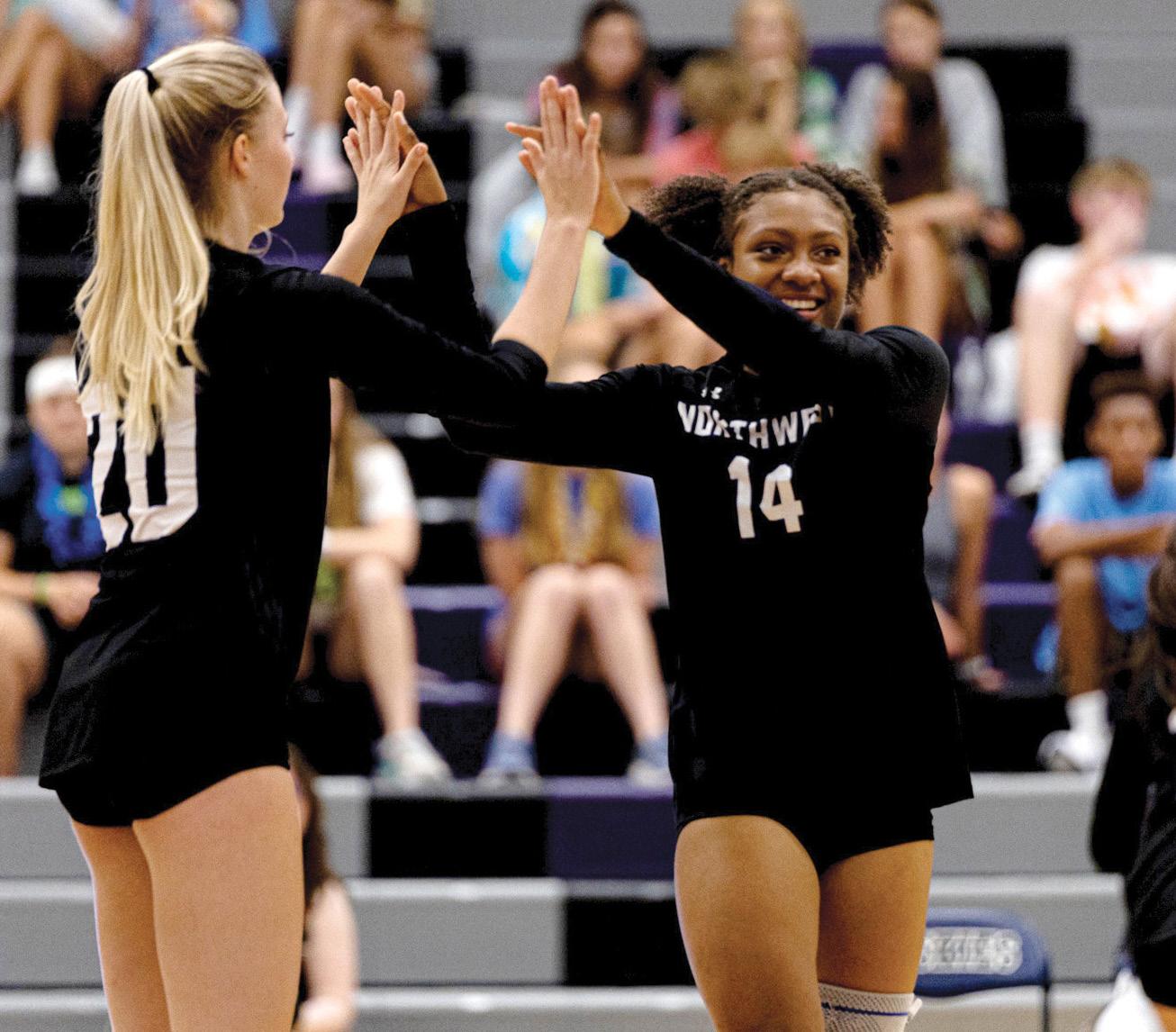
Senior Grant Stubblefield celebrates after scoring a touchdown during the game against Saint Thomas Aquinas, Sept. 9. “I feel like we have a lot of learning to do throughout the season and we are only going to get bettwer week by week as the season progresses,” Stubblefield said. The Huskies were defeated by the Saints, 13-28. (Photo by Lila Vancrum)

Sophomore Kate Bowling performs a cheer routine during Husky Night, Aug. 26. “Sometimes cheer gets hard because it can get very time consuming,” Bowling said. “But nothing beats the feeling of a good performance.” (Photo by Bailey Thompson)
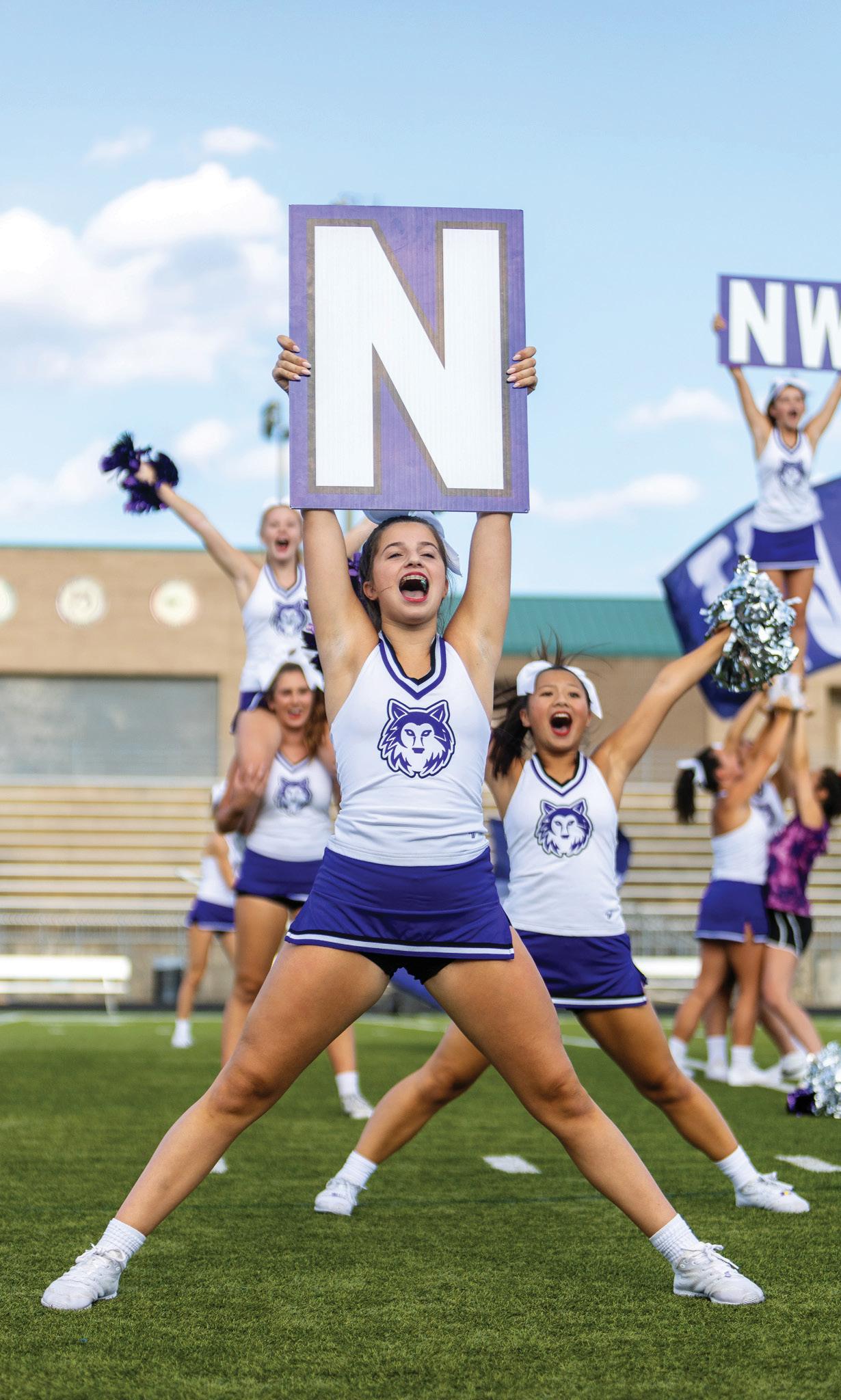
Freshman Maryam Wambi hits a forehand during a match against Shawnee Mission South, Sept. 7. “[My favorite thing about tennis is] being active, and I played for such a long time that it became a part of me.” Wambi said.
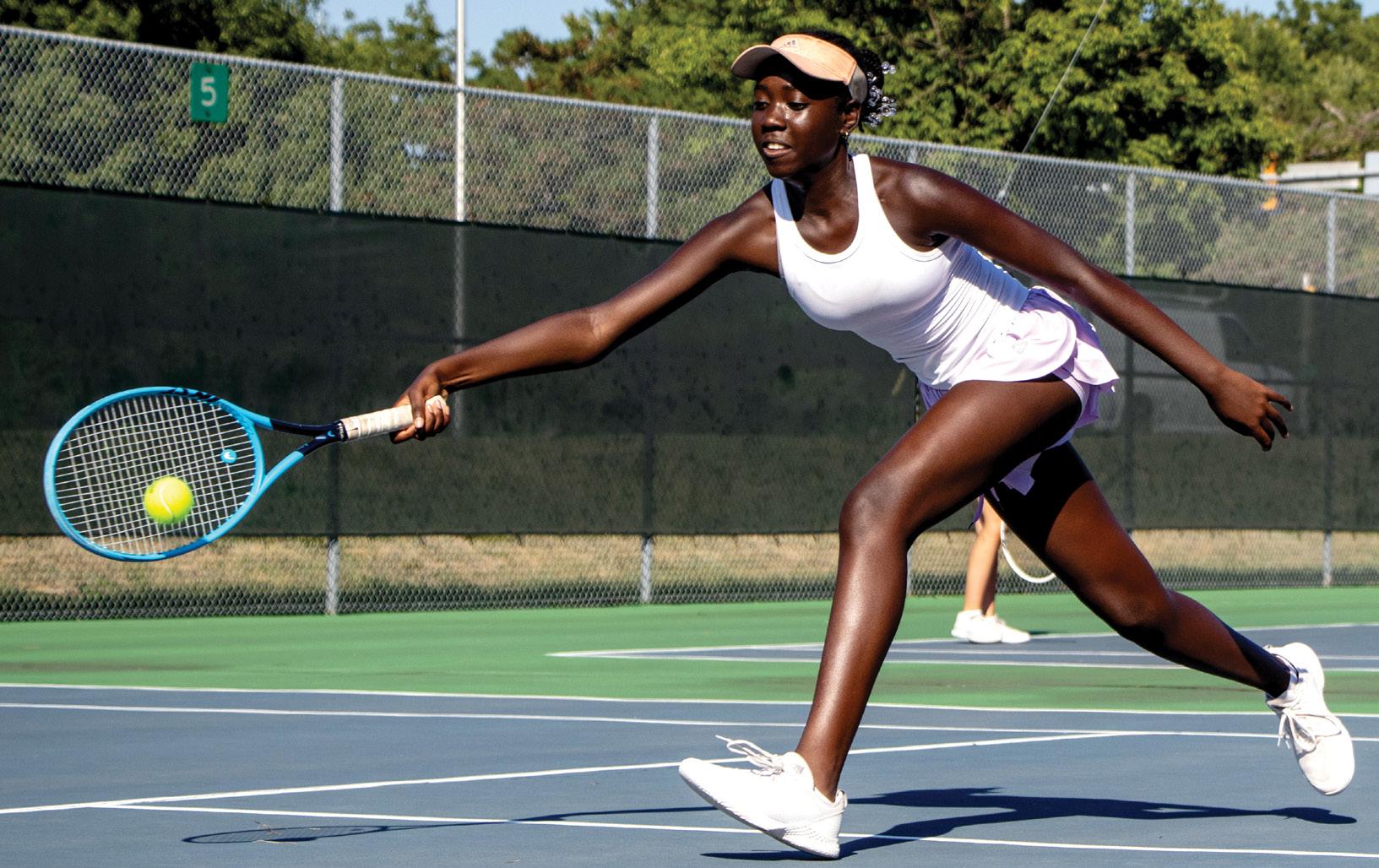 (Photo by Shahd Abdeljalil)
(Photo by Shahd Abdeljalil)
Senior captain Parker Million dribbles down the field during the varsity boys’ soccer game against Lee’s Summit North, Sept. 15. “We have a very good team this year, and we all have a lot of fun hanging out, which has brought the team closer,” Million said. The Huskies defeated the Broncos, 4-0.
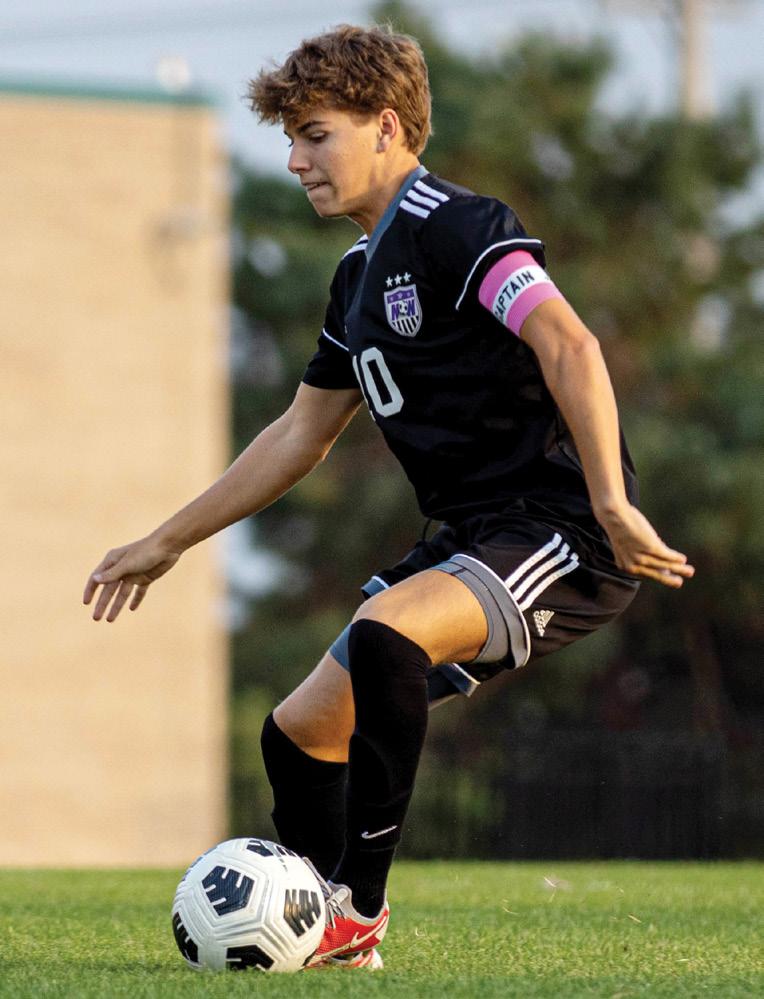 (Photo by Remi Nuss)
(Photo by Remi Nuss)
Mailing address: 13260 Switzer Rd, Overland Park, KS 66213
Phone: 913-239-3544
Email: BVNWnewspaper@bluevalleyk12.org
Letters to the editor may be submitted electronically on our website at BVNWnews.com under the “Contact Us” tab. Letters may be published either on BVNWnews.com or in our print edition. Letters may be edited.
The Express is the official high school news publication of Blue Valley Northwest High School, an open forum distributed to all students seven times a year. This is the September Issue of Volume 30.
This is a student publication and may contain controversial matter. Blue Valley Unified School District No. 229 and its board members, officers and employees disclaim any responsibility for the content of this student publication; it is not an expression of School District Policy. Students and editors are solely responsible for the content of this student publication.
BVNW Publications is committed to amplifying the voices of our student body and community, no matter the color of skin, religious belief, financial status, gender or sexuality. We are an independent platform that by practice, and by law, is not a mouthpiece of the school district. We promise to cover all stories with fact and integrity. We stand in solidarity with all people who are fighting for equality. We promise to educate ourselves and represent our entire community to our audience to the best of our ability. For our students, teachers, readers, viewers and families who are struggling for equality, we deplore the injustices you face. We strive to be a unifying platform that celebrates diversity and shares your stories, and we will continue to work toward increasing minority voices internally, as well as externally. We may not always get it right, but we will try, and we will listen and be open to suggestions on how to better tell your stories.
Editors in Chief
Julia Moser
Lucy Halverson
Print Editor
Anna Bailey
Online Editor
Liz LaHood
Copy Editor
Ashley Adams
Photo Editors
Norah Alasmar
Lila Vancrum
Sports Editor
Alyssa Gagnon
Opinions
Lizzie Lively
Editor
Sabrina San Agustin
Social Media Editor
Regan Simeon
Chief Photographer
Bailey Thompson
Designers
Avery Sigg Prajwal Adhikari
Alex Cowdrey Libby Addison Lindsay Maresh Quinn Brown Reagan Kauth Thomas Rose Hannah Rakolta Saraphina Wambi Sydney Barnett Jeny Jithesh
Lexi Jones
Addie Aadland
Harper Latta
Nafsiya Hafiz Bridget Hamlin Rachel King
Remi Nuss Shahd Abdeljalil Arpa Das George Buckley Kendall Dickerson
Alivia Ozbun
Jim McCrossen